

Can You Get a PhD without a Masters?
- Applying to a PhD
Yes, it’s possible to get a PhD without first having a Masters degree.
The conventional route for someone who earns a PhD is to pursue a Bachelor’s degree, followed by a Masters degree and then a PhD. However, several students opt to bypass a Master’s degree by enrolling onto a doctoral programme as soon as they complete their undergraduate degree.
Before we discuss how this can be done, it is worth mentioning the advantages and disadvantages of this route.
Advantages of Applying to a PhD without A Masters
The motivations for undertaking a PhD immediately after an undergraduate course are largely in saving money and time. This is because you will essentially eliminate a year of study. Another advantage of immediately enrolling onto a doctorate degree is project availability. If you find a project that you’re really interested in, it’s unlikely that it will still be available in a years’ time. Therefore, bypassing a Masters and enrolling directly into a PhD will increase your chances of securing the research project before it becomes unavailable.
Disadvantages of Applying to a PhD without A Masters
Although a Masters degree will add a year onto your academic journey, it can be incredibility helpful for your development and can help prepare you for a doctoral degree.
Not having a Master’s degree may prove to be a hindrance during your application process. This is because many other students will also apply to the same research projects, and it’s likely that the majority will hold a Masters. This will put you at a disadvantage to them.
Besides this, the dissertation project you’ll be required to undertake on a Master’s programme will provide you with a taste of what it is like to work on a research-based project. In addition to this, it’s likely that you’ll be able to select your own dissertation topic. As such, you can explore a specific field you’re interested in in further detail. This is a great way to confirm that both research-based work and the specific field you’re interested in are right for you before committing the next few years to it via a PhD.
Another advantage to the dissertation project associated with a Masters degree is the opportunity it provides you with to work closely with a project supervisor. This will help you understand the PhD student-supervisor relationship and communication frequency that works best for you. You can then use this knowledge to find supervisors who would compliment you when it comes time to find a PhD project to apply to. For tips on how to find a great PhD supervisor, check out our supervisor guide .
PhD without a Masters – How Does It Work?
To be considered for a PhD without a Master’s, at a minimum you will be expected to have a Bachelors degree. For students looking to enrol onto a STEM (Science, Technology, Engineering and Maths) PhD, a relevant Bachelors in a 3-year undergraduate course is usually expected. However, this is not the case for students looking to apply to non-STEM PhDs. Rather, students looking to apply to doctorates in subjects such as those surrounding Arts and Humanities are usually expected to have a relevant Bachelors from a 4-year course.
In addition to this, you will need to have demonstrated strong academic performance during your undergraduate course. This means that your Bachelors will need to be at least a UK Upper Second-Class Honours (2.1) for nearly all institutions to consider you.
Should you be accepted into a PhD programme without a Masters, the usual process will be to first register you as an MPhil student. You will then have a year to prepare and submit a thesis. Your thesis will need to detail the research you have carried out within that year and outline how you intend to continue it into a full PhD study. There are three outcomes of this MPhil thesis review:
- Failure and you’re not awarded anything.
- You pass, however, the supervisor doesn’t believe you’ve demonstrated strong research skills. You’re awarded an MPhil but they do not upgrade your course to a PhD programme.
- You pass and the supervisor believes you have proven yourself as a capable researcher. Your course is upgraded to a PhD as opposed to you being awarding an MPhil.
For more information on these outcomes, read the outcomes section of our PhD Viva guide .
Integrated PhD
Some universities offer Integrated PhD degree programmes (also known as an Integrated Masters degree). These are four-year programmes comprising of a one-year Masters degree immediately followed by a three-year PhD degree. These can prove a great option for graduate students who are looking to undertake a PhD without a Masters but are struggling to meet the eligibility requirements. You can read about the many benefits of integrated degrees here .
Finding a PhD has never been this easy – search for a PhD by keyword, location or academic area of interest.
PhD without a Bachelors – Is It Possible?
Yes, it is possible to get a PhD without a Bachelor’s, however, this is extremely uncommon.
When this occurs, it is almost always reserved for very mature individuals. For example, an individual may not be in active academia but still may have significantly contributed to their field. This contribution could be through the work they have undertaken as part of their career, or as part of a long-term study project, they have undertaken out of self-interest.
In either case, the individual would need to prove that they have extensive experience in their field and have directly contributed to new knowledge within it. The key factor here is that their work has pushed the boundaries of existing knowledge. It is not enough for an individual to be regarded as an expert in their field – they must have contributed something new and meaningful. It’s common for individuals awarded a PhD through this means to have produced several publications within their lifetime. It’s also common for the individual to have gained several professional accreditations within their field before even being considered suitable for a PhD research degree.
Universities Offering PhD without a Masters
Unfortunately, there is not a centralised list of universities which offer PhDs without a Master’s degree. The reason for this is that the edibility requirements differ from PhD to PhD and from department to department.
Therefore, you will need to check the guidelines for each individual university and the requirements for each specific PhD you’re interested in.
Should you find a PhD programme you can apply to with a Bachelors, make every effort to make your application as strong as possible. This is because you will be competing against other candidates, most of who will have a Master’s degree.
Not only can you strengthen your application by having a Bachelors with a First-Class Honours (1st), but you can also do so by showing the traits of a successful researcher. This includes showing a genuine interest in the project, a high work ethic, and exceptional communication skills.
Additionally, a strong letter of recommendation from a respected university lecturer will prove very beneficial. This is especially true if the lecturer supervisors his or her own PhD students. This is because the lecturer will understand the skills required for an adept research student.
For more advice on how to apply to a PhD degree, check out our Application Process Guide.
Browse PhDs Now
Join thousands of students.
Join thousands of other students and stay up to date with the latest PhD programmes, funding opportunities and advice.
Can you get a PhD without a master’s degree?

Traditionally seen as the pinnacle of academic success, a Doctor of Philosophy (PhD) rigorously prepares you for a career in research and academia that might even earn you the title of “Professor” one day. Getting a PhD is no easy feat, and involves years of gruelling hard work, often with a few life crises and probably thoughts of quitting in between. That said, the question of whether there’s a ‘shortcut’ on how to get a PhD often pops up in student forums and discussions.
Although getting a master’s degree after completing your undergraduate studies is the conventional route taken towards a PhD, you can in fact bypass your master’s degree entirely and go straight into a doctorate programme. Granted, not all subjects or countries have this option, but there’s plenty to go around if you want to save time and money to get your research going.
The University of California, Berkeley , for instance, only admits Bachelor’s degree holders into its political science PhD programme, with a possibility for students to obtain a master’s qualification if they withdraw from the doctoral degree as long as sufficient coursework has been completed. Similarly, you can get a PhD in the Ohio State University’s chemical engineering programme without having done a master’s .
Across the pond, the University of Cambridge can accept students without a master’s degree , where they’ll be placed in a probationary year before progressing into their dissertation. As you can see, various routes are available for direct PhD entry in different fields.
https://twitter.com/elMunir5/status/1495823917986025478
How long does it take to get a PhD?
The doctoral degree is primarily a research degree , where you have to come up with your own original ideas and spend some years of fieldwork, lab work, or any other type of real-world practice that will contribute towards your final dissertation.
If you’re wondering why the US is a bit relaxed in terms of entry requirements, it’s probably because a PhD there is almost never a pure research degree, and generally takes a much longer time to complete as a full-time student than in the UK or Australia.
https://twitter.com/Jamaticulus/status/1495655832045957123
Many US doctorate programmes begin with coursework and assessments in the first two years. After passing an exam, it’s only then that you’ll start working on your research and dissertation. Overall, you’re looking at a time frame of four to six years full-time if you want to get a PhD in an American university.
Compared to anywhere else, you can get a PhD in the US without forking out any for tuition, even for international students. This is because the programmes there tend to be fully-funded , with enough stipend and income from teaching assistantships to cover your cost of living.
Meanwhile, a PhD in Australia or the UK is generally a pure research degree, where you dive headlong into your dissertation topic from the start of your programme. You’ll already be discussing your doctoral thesis with a supervisor in your first year, starting with a literature review and critiquing existing scholarship on your subject before moving on to independent research in the following years. The programme duration is shorter than in the US — a full-time study takes about three to four years.
How can I get a PhD without a master’s degree as an international student?
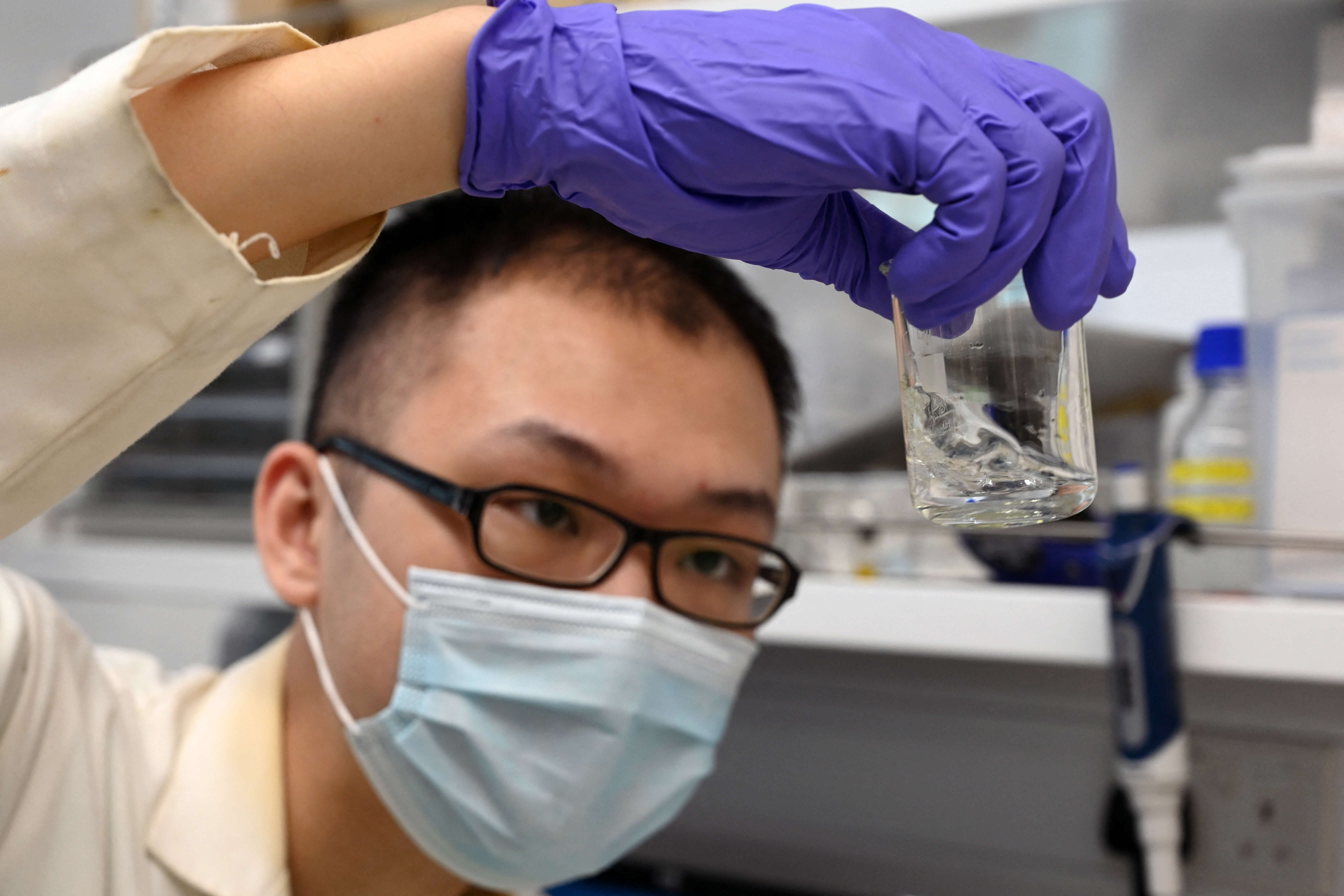
Full-time PhD programmes in the US are a few years longer compared to other countries. Source: Roslan Rahman/AFP
It goes without saying that being in good academic standing will go a long way in getting into a PhD programme right after your undergraduate studies, but that’s only part of the equation. PhD applications require more paperwork, including a statement of purpose tailored to the university and recommendation letters from your previous instructors that can vouch for your potential as a candidate.
The best way to get into your programme though? Contact the university directly to express your interest and see what funding package is available based on your circumstances. The graduate admissions page will list what is required for application, where you’ll know if you can be admitted with just a bachelor’s degree.
Although skipping a step to get a PhD sounds ideal, you need to assess if you have the capacity to undertake a high-intensity academic life. A master’s degree might cost you an extra year or two, and a few thousand off your account, but it builds a solid foundation for the kind of discipline and knowledge you will need to survive your PhD.
If you do decide to take the plunge, you might want to look out for programmes that can grant you a master’s qualification along the way, so your hard work pays off in case you choose to withdraw from your PhD in the future.
Popular stories
More doing, less typing: 8 degrees that have little to no essay writing.

Experience vs degree: 7 must-know facts for high school graduates

US$14,895 for a veterinary science degree: The cheapest countries for you to pursue animal healthcare

The immense value of an English Language and Literature degree, according to an entrepreneur

Is it a good time to be getting a PhD? We asked those who’ve done it

10 PhD scholarships in the UK for international students 2022

10 great PhD scholarships in the US for international students 2022

- Majors & Careers
- Online Grad School
- Preparing For Grad School
- Student Life
Do You Need a Master’s to Get a PhD? Not Necessarily

If you’re thinking about becoming an expert in your field by getting a PhD, you might already know how long the road ahead of you may be. Many people dream of getting a PhD, but they often get put off by the time commitment and cost involved before they can even get started.
After all, PhDs can take anywhere from 3 to 8 years to finish — and in some cases, even more. Getting a PhD can be quite a difficult endeavor for people who have jobs , families, and other financial responsibilities to balance along the way.
If you want that coveted PhD without compromising your other responsibilities, you might find yourself asking, “do you need a master’s to get a PhD?”
The short answer is: not necessarily .
Although the traditional route to a PhD often involves getting a master’s degree first, many direct to PhD programs allow academics to skip an MA altogether. Even those with bachelor’s degrees have a decent chance at getting into a PhD program. However, going directly for a doctorate still has its advantages and disadvantages.
Table of Contents
How to Get a PhD Without a Master’s Degree
The minimum requirement to be considered for a PhD is a bachelor’s degree, but your chances of getting accepted will depend on how well you tender your application .
Educational institutions won’t freely advertise that they offer doctorates without master’s degrees. It becomes your task to look into the core beliefs of the universities you’re interested in to see whether you have a chance at success.
When putting together your application, you’ll have to check the universities’ requirements to ensure that your previous academic performance qualifies. The better your qualifications and recommendation letters are, the higher your chances of being considered.
Of course, you may be able to eliminate many of your troubles by going the direct to PhD route, which takes you from undergrad straight into a doctorate program.
PhD Without a Master’s – How Does it Work?
PhD programs that consider candidates who don’t already have a master’s will expect you to have at least a bachelor’s degree.
The expectation can vary depending on the doctorate, but the bare minimum requirement is generally:
A three-year undergraduate degree in a related discipline for STEM PhDs
A relevant four-year undergraduate degree for PhDs in the arts and humanities.
To be considered for a PhD without a master’s, you’ll also need to have a strong academic record from your undergraduate studies. Universities are highly selective when admitting PhD candidates without master’s, so you’ll need to show academic transcripts with a high GPA.
The first way you can study a PhD without a master’s is by applying to a program that allows a direct route from bachelor’s to PhD. There are a number of doctoral programs, especially online ones, that only require you to have an undergraduate degree to apply. Be aware that even if a master’s is not required, you’ll need to submit a strong application, including a compelling research proposal, in order to stand out from other applicants, many of whom may have master’s degrees.
Even if the program normally requires a master’s as a prerequisite, you may be able to get around this by first pursuing an MPhil. Under this process, you’re given a year to prepare a thesis, which outlines your initial research and how you plan to expand on it for a full PhD dissertation. If successful, your MPhil will be upgraded to a doctorate, you’ll become a PhD candidate, and eventually be able to earn a PhD. If you don’t demonstrate strong enough research skills, you may also pass and be awarded an MPhil degree, but won’t be upgraded to a PhD student.
Another option would be to pursue an integrated PhD program, sometimes known as an integrated master’s degree. These are specific courses offered by some colleges that combine a master’s and PhD: if you’re successful, at the end of the course you’ll be awarded both qualifications. Typically, integrated PhD programs last for four years, covering a one-year master’s and a three-year PhD.
How Long Does it Take to Get a PhD Without a Master’s?
Studying a PhD program without a master’s will typically add an extra year to the usual timeline , as you’ll need to spend an additional year either completing an MPhil or as part of an integrated PhD program. Therefore, as most doctorates take three to five years to complete, a PhD without a master’s will usually take between four and six years.
On the other hand, if you choose a PhD program that only requires a bachelor’s degree to join, it will only take the standard length of time for that program, usually three to five years.
Which Universities Offer PhDs Without a Master’s?
Unfortunately, most universities don’t advertise PhD programs without master’s, as candidates are generally accepted on a case-by-case basis. Furthermore, admission requirements for PhD programs are usually set by the school or department, so even if one PhD program accepts candidates without master’s degrees, this may not be the case across the university.
If you want to pursue a PhD without a master’s, you’ll need to contact the admissions committee of the programs you’re interested in, and check their requirements.
Is it Possible to Get a PhD Without a Bachelor’s Degree?
It is not impossible to get a PhD without first having a bachelor’s degree, but it is very uncommon. In some rare cases, universities may accept candidates for doctoral programs with extensive professional experience in lieu of an undergraduate qualification.
If you’re able to demonstrate significant contributions to your field through either work or self-directed study, and that you’ve directly contributed new knowledge to the discipline, you may be accepted into a PhD program. You’ll be more likely to be accepted if you’ve been published, preferably multiple times, and have a number of professional accreditations.
Advantages of Going Straight to PhD
The biggest advantage of bypassing a master’s degree is easily the amount of time and money you can save in the process.
An MA can take as short as a year or as long as three to obtain. And when doctorates usually take anywhere from 5-7 years, shaving 1-3 years off can make a huge difference — especially for busy people who want to get ahead in their careers quickly.
Of course, you also won’t need to pay thousands of dollars in tuition fees for an MA. These savings alone are usually enough to convince many people to go for a PhD without master’s degrees slowing them down along the way.
Other benefits you may encounter are:
- Grants and Stipends – Another advantage of joining a direct-entry doctorate program is the possibility of obtaining outside funding (if you qualify). Many PhD programs offer students financial assistance in the form of partial funding or full tuition waivers. If you can benefit from financial aid, you might be glad to know that some programs also offer stipends on top of the tuition grants.
- Research Projects – As a doctoral candidate, you might want to start or join certain research projects that may be time-sensitive. In cases like these, it’s usually advisable to go directly for PhDs to increase your chances of securing your dream project. If the project you’re looking at is a long-term endeavor, a doctoral program may also be the best route to allow for more in-depth fieldwork and experiments during your studies.
- Less Stress and Hassle – Choosing not to go for a master’s degree might help eliminate stress and hassle, such as school applications and potential relocations. Going direct to PhD means you’ll likely only need to move once (if at all) to your chosen school’s area.
Disadvantages of Skipping a Master’s Degree
Although the answer to the question “can you get a PhD without a master’s?” is a resounding yes, it doesn’t always mean that it’s the right choice for everyone.
Going from undergraduate studies straight into a PhD program can be quite a huge adjustment. The program might suddenly expect you to get familiar with new techniques, work, and professional relationships — and fast!
This adjustment period may put you at a disadvantage compared to other doctorate candidates who have previously completed a master’s degree.
Other hindrances you might encounter are:
- Difficulty During Applications Process – PhD programs are competitive and often only take the best-qualified applicants. If you’re competing with other students who have master’s degrees, it may affect your chances of securing a spot. However, if you go for a direct to PhD program (undergraduate straight into PhD), it may be possible to avoid this problem.
- Less Experience in Research and Dissertation Work – A thesis or dissertation is a major requirement of completing a master’s degree. Skipping an MA means you’re missing out on all of the experience you’d otherwise get in research and fieldwork. You’ll also have less experience actually writing a dissertation.
- Less Time to Confirm Your Interests – Working on your master’s thesis will allow you to select a topic that interests you. You usually spend about a year working on your thesis, during which you can explore the topic further to confirm whether it’s really what you want to go into. By skipping the MA, you’re potentially giving up the chance to verify if the field truly interests you before you fully commit to it for the duration of your PhD. Going straight into a doctoral program may also mean that you miss out on the chance to choose your own topic and create your own research proposal.
- Missing the Opportunity to Work with a Thesis Supervisor – When doing a master’s degree, postgraduate students work with a thesis supervisor who provides guidance and advice for their projects. Going direct to PhD means you miss out on the experience of working with a supervisor and finding the right types of communication, schedules, and professional relationships for your needs. This means you’ll have to figure all of this out during your doctorate program, which can add to your stress.
So Can you Get a PhD Without a Master’s? Yes, But Not Always
You don’t necessarily need a master’s in order to pursue a PhD. Some PhD programs accept candidates with a bachelor’s degree only, or you may be able to get around a master’s prerequisite by signing up for a MPhil or an integrated PhD program.
The “ideal” doctorate program doesn’t come along often. If you find yourself faced with a choice between pursuing a master’s degree or trying to get into your dream doctoral program, you might want to skip the master’s degree altogether.
Although you may miss out on an MA qualification, often, a finished PhD supersedes the need for one anyway.
Getting a PhD without a master’s degree can be difficult, but it’s certainly not impossible! For more inspiration, take a look at our guides to the highest-paying PhD degrees and the best one-year online PhD programs .
Frequently Asked Questions
Can you skip a master’s and get a phd.
Yes, there are a few ways you may be able to get into a PhD program without completing a master’s first. You could opt for a PhD program that doesn’t require master’s as a prerequisite, or go for a MPhil or integrated PhD program. However, keep in mind that not all universities or programs allow you to apply for a PhD without a master’s.
Can I apply for a PhD after my bachelor’s?
In some cases, you can apply to a PhD program as soon as you’ve finished your undergraduate degree. Some doctoral programs accept candidates with a bachelor’s degree only, though you’ll probably need to have an excellent academic record and a strong research proposal.
Is a PhD better than a master’s?
PhD and master’s degrees are valuable in different ways, so it’s not really fair to say that a PhD is better than a master’s. Although a PhD is a more advanced degree, there are roles and professions that would prefer you to have a master’s rather than a PhD. Master’s programs usually have a more practical, real-world focus, which can be more useful for many roles in the business, non-profit, and government sectors. On the other hand, a PhD is strongly rooted in in-depth research, so prepares candidates to work in research and academia.

Lisa Marlin
Lisa is a full-time writer specializing in career advice, further education, and personal development. She works from all over the world, and when not writing you'll find her hiking, practicing yoga, or enjoying a glass of Malbec.
- Lisa Marlin https://blog.thegradcafe.com/author/lisa-marlin/ 12 Best Laptops for Computer Science Students
- Lisa Marlin https://blog.thegradcafe.com/author/lisa-marlin/ ACBSP Vs AACSB: Which Business Program Accreditations is Better?
- Lisa Marlin https://blog.thegradcafe.com/author/lisa-marlin/ BA vs BS: What You Need to Know [2024 Guide]
- Lisa Marlin https://blog.thegradcafe.com/author/lisa-marlin/ The 19 Best MBA Scholarships to Apply for [2024-2025]
How Long Does it Take to Get GRE Scores?
How many grad schools should i apply to in 2024-2024, related posts.

- 12 Best Laptops for Computer Science Students

- Is a Master’s Degree Worth It? [2024 Guide]

BA vs BS: What You Need to Know [2024 Guide]
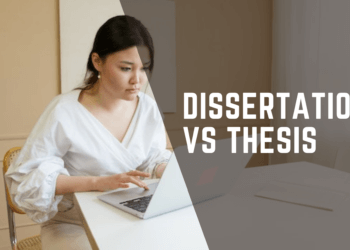
Dissertation vs Thesis: Your 2024 Guide

How To Apply to Grad School: Ultimate 2024 Guide

7 Best Laptops for Engineering Students in 2024

Leave a Reply Cancel reply
Your email address will not be published. Required fields are marked *
Save my name, email, and website in this browser for the next time I comment.
Recent Posts
- Applying to Big Tech This Year? Here’s How to Ace It.
- 73% of job seekers believe a degree is needed for a well-paying role–but is it?
- Graduate Certificate vs Degree: What’s the Difference? [2024 Guide]

© 2024 TheGradCafe.com All rights reserved
- Partner With Us
- Results Search
- Submit Your Results
- Write For Us

Research Voyage
Research Tips and Infromation
PhD without a Master’s Degree? Exploring Direct PhD Programs
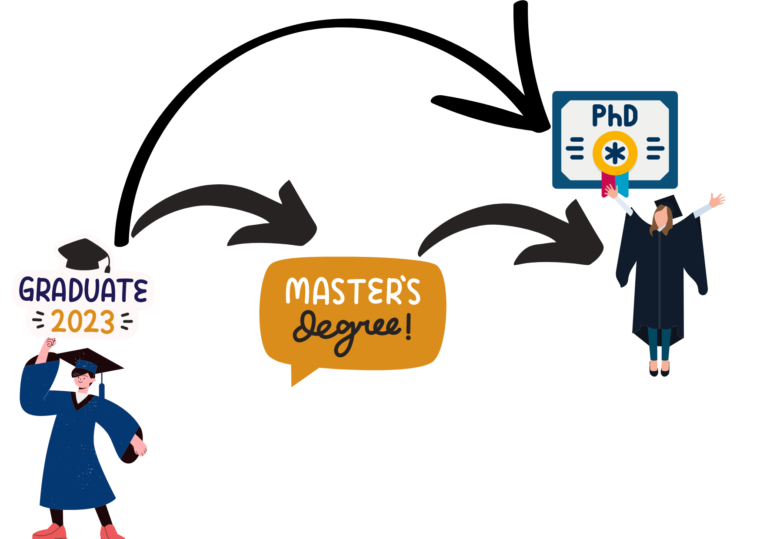
Introduction
What is a direct phd program.
- Pros of Doing a PhD Without a Master's Degree
- Cons of Doing a PhD Without a Master's Degree
- Fields in Which it is More Common to Enter a PhD Program Without a Master's Degree
- Fields in Which a Master's Degree is Often Required for Admission to a PhD Program
- How to Apply for a PhD Program Without a Master's Degree
- Examples of Successful PhD students who did not have a Master's Degree
- Top Universities Offering PhD without Master's Degree
Direct PhD Programmes in United States:
Direct phd programmes in europe:, direct phd programmes in australia:, direct phd programmes in asia:.
During my teaching years at a premier Engineering institute in India, I encountered an intriguing case that shed light on the possibility of pursuing a PhD without a master’s degree.
One day, a former student reached out to me with exciting news. She had successfully cleared the Graduate Aptitude Test in Engineering (GATE), a qualifying exam for admission to postgraduate programs. Even more surprising was her plan to directly join the PhD program at the prestigious Indian Institute of Technology (IIT) Delhi.
Initially, I found this puzzling—how could one step into a PhD without completing a master’s degree? It turned out that such programs do indeed exist at IITs and other esteemed institutions in India and abroad.
Intrigued by this revelation, I delved deeper into the details and later shared this valuable information with many students. Little did I know that this piece of knowledge would significantly benefit aspiring scholars aiming for a direct PhD path.
A PhD, or Doctor of Philosophy, is the highest level of academic degree that one can achieve in many fields. It typically involves several years of intensive research and coursework in a specialized area and completing a dissertation that makes an original contribution to the field. A PhD can lead to many career opportunities, including positions in academia, industry, and government.
The traditional path to a PhD usually involves completing a bachelor’s degree in a related field, followed by a master’s degree before starting the PhD program. The bachelor’s degree provides a broad foundation in the field, while the master’s degree provides more specialized training and research experience that prepares students for the rigours of a PhD program.
However, some students may wonder whether it is possible to skip the master’s degree and go straight into a PhD program. This can be an attractive option for students who want to save time and money, or who have extensive research experience that makes them well-prepared for a PhD program.
In this article, we will explore the pros and cons of doing a PhD without a master’s degree, as well as some examples of successful PhD students who took this route.
A direct PhD program, sometimes referred to as an integrated or combined PhD program, is a doctoral-level academic program that allows students to pursue a PhD degree without first obtaining a master’s degree.
In traditional PhD programs, students typically complete a master’s degree before embarking on their doctoral studies. However, in a direct PhD program, students are admitted directly into the PhD program after completing their undergraduate studies.
Direct PhD programs are often structured to be more streamlined, allowing students to move directly into advanced research and coursework related to their field of study. These programs are typically designed for highly motivated and academically strong students who demonstrate exceptional potential for research and scholarly work.
The specific structure and requirements of direct PhD programs can vary depending on the university and the field of study. In some cases, students may be required to complete additional coursework or examinations to ensure they have the necessary background knowledge and skills for doctoral-level research. However, the overall goal of these programs is to accelerate the process of earning a PhD by allowing students to begin their doctoral studies earlier in their academic career.
Pros and Cons of Doing a PhD Without a Master’s Degree
While it is possible to pursue a PhD without completing a master’s degree, there are several potential advantages and disadvantages to consider.
Pros of Doing a PhD Without a Master’s Degree
- Saving time and money: Completing a master’s degree can add two or more years to the time it takes to earn a PhD, as well as significant tuition costs. Skipping the master’s degree can allow students to complete their PhD more quickly and with fewer expenses.
- Gaining more research experience: Some students may already have extensive research experience, either through undergraduate research opportunities or work in a related field. Skipping the master’s degree can allow these students to continue building on their research skills and contribute to the field more quickly.
Cons of Doing a PhD Without a Master’s Degree
- Lack of preparation in research methodology and theory: Master’s degree programs often provide students with more specialized training in research methods and theoretical frameworks, which can be valuable preparation for a PhD program. Skipping the master’s degree can mean missing out on this preparation and potentially struggling to keep up with the demands of a PhD program.
- Potential challenges in meeting admission requirements: Some PhD programs may require applicants to have a master’s degree or equivalent research experience, which can make it difficult for students who have not completed a master’s degree to be accepted into a PhD program. Additionally, some students may need to complete additional coursework or exams to meet the admission requirements for a PhD program.
- A student who completed a bachelor’s degree in computer science and spent several years working in the industry as a software developer may have gained extensive research experience in a specialized area of computer science. This student may be well-prepared to pursue a PhD in computer science without completing a master’s degree.
- A student who completed a bachelor’s degree in psychology and has some research experience through undergraduate research opportunities may struggle to keep up with the demands of a PhD program in psychology without completing a master’s degree that provides more specialized training in research methods and theoretical frameworks.
Fields in Which it is More Common to Enter a PhD Program Without a Master’s Degree
While it is not uncommon for students to pursue a master’s degree before starting a PhD program, there are some fields where it is more common for students to enter a PhD program directly after completing a bachelor’s degree. These fields include:
- Engineering: In many engineering disciplines, it is common for students to enter PhD programs directly after completing a bachelor’s degree. This is because engineering programs often provide students with extensive research experience and specialized training in research methods and theoretical frameworks that prepare them for a PhD program.
- Natural Sciences: In fields such as biology, chemistry, and physics, it is also common for students to enter PhD programs directly after completing a bachelor’s degree. This is because these fields often require extensive research experience and specialized training in laboratory techniques and scientific methods, which students can gain through undergraduate research opportunities and coursework.
In these fields, students who have completed a bachelor’s degree and have extensive research experience may be well-prepared to pursue a PhD program without completing a master’s degree. However, it is important to note that this may not be the case in other fields, such as the social sciences or humanities, where a master’s degree may be more commonly required or preferred for admission to a PhD program.
It is important for students to research the admission requirements and expectations for PhD programs in their chosen field before deciding whether to pursue a master’s degree or apply directly to a PhD program after completing their bachelor’s degree.
Fields in Which a Master’s Degree is Often Required for Admission to a PhD Program
While it is possible to pursue a PhD without completing a master’s degree, there are some fields where a master’s degree is often required or preferred for admission to a PhD program. These fields include:
- Humanities: In fields such as history, philosophy, and literature, it is common for students to complete a master’s degree before applying to a PhD program. This is because these fields often require extensive coursework and training in research methods and theoretical frameworks, which students can gain through a master’s degree program.
- Social Sciences: In fields such as psychology, sociology, and political science, a master’s degree is often required or preferred for admission to a PhD program. This is because these fields often require specialized training in research methods and statistical analysis, which students can gain through a master’s degree program.
In these fields, students who have completed a bachelor’s degree but do not have a master’s degree may find it difficult to gain admission to a PhD program. This is because PhD programs in these fields often have high admission standards and may require applicants to have completed a master’s degree or equivalent research experience.
- A student who completed a bachelor’s degree in English literature and has some research experience through undergraduate research opportunities may need to complete a master’s degree in order to gain admission to a PhD program in literature. This is because PhD programs in literature often require extensive coursework and training in research methods and theoretical frameworks.
- A student who completed a bachelor’s degree in psychology and has some research experience through undergraduate research opportunities may be able to apply directly to a PhD program in psychology. However, some PhD programs in psychology may require applicants to have completed a master’s degree or equivalent research experience, which could make it difficult for this student to gain admission without completing a master’s degree.
How to Apply for a PhD Program Without a Master’s Degree
While it can be challenging to gain admission to a PhD program without a master’s degree, there are some steps that students can take to increase their chances of success. These steps may include:
- Demonstrating exceptional academic qualifications: Students who have completed a bachelor’s degree with exceptional grades and have a strong academic record may be more likely to be considered for admission to a PhD program without a master’s degree.
- Demonstrating research potential: Students with extensive research experiences, such as through undergraduate research opportunities or independent research projects, can demonstrate their potential for success in a PhD program.
- Completing additional coursework or exams: Some PhD programs may require applicants without a master’s degree to complete additional coursework or exams to demonstrate their readiness for PhD-level work. This may include completing additional courses in research methods, statistics, or theory, or taking qualifying exams to demonstrate mastery of the field.
- A student who completed a bachelor’s degree in physics with exceptional grades and extensive research experience may be able to gain admission to a PhD program in physics without completing a master’s degree. This is because the student has demonstrated exceptional academic qualifications and research potential.
- A student who completed a bachelor’s degree in history and has some research experience through undergraduate research opportunities may need to complete additional coursework or exams to gain admission to a PhD program in history. This is because PhD programs in history often require extensive coursework and training in research methods and theoretical frameworks, which students may not have gained through their undergraduate studies alone.
It is important for students to research the admission requirements and expectations for PhD programs in their chosen field before deciding whether to pursue a master’s degree or apply directly to a PhD program after completing their bachelor’s degree. Students may also want to reach out to professors and advisors in their field to discuss their options and receive guidance on the application process.
Please visit my article on “How to Build a Strong Research Portfolio in 07 Easy Steps” . This article will help you in building a strong research portfolio. Visit my blog post sections on writing research papers for journals and writing research papers for conferences . These articles will help you in writing quality papers for journals and conferences.
Examples of Successful PhD students who did not have a Master’s Degree
While it is less common for students to enter a PhD program without a master’s degree, there are examples of successful PhD students who have done so. These students have demonstrated exceptional academic qualifications, research potential, and perseverance in their programs. Some examples of successful PhD students who did not have a master’s degree include:
- Dr. Jennifer Doudna: Dr. Doudna is a biochemist who won the Nobel Prize in Chemistry in 2020 for her work on the CRISPR-Cas9 gene editing system. She entered a PhD program in biochemistry at Harvard University directly after completing her bachelor’s degree at Pomona College. She completed her PhD in just four years and went on to a successful career in academia and research.
- Dr. Maryam Mirzakhani: Dr. Mirzakhani was a mathematician who won the Fields Medal, often considered the highest honour in mathematics, in 2014. She completed her bachelor’s degree in mathematics in Iran and then entered a PhD program in mathematics at Harvard University without completing a master’s degree. She completed her PhD in just three years and went on to a successful career in academia and research.
- Dr. David Gelernter: Dr. Gelernter is a computer scientist and artist who completed his bachelor’s degree in mathematics and classical Hebrew literature at Yale University. He then entered a PhD program in computer science at the same institution without completing a master’s degree. He completed his PhD in three years and went on to a successful career in academia and research.
These examples demonstrate that it is possible for students to succeed in PhD programs without completing a master’s degree. However, it is important to note that these students had exceptional academic qualifications, research potential, and perseverance and that their success was not guaranteed.
Students who are considering applying to PhD programs without completing a master’s degree should carefully consider their own academic qualifications and research potential and should seek guidance and support from advisors and mentors in their field.
Top Universities Offering PhD without Master’s Degree
While it is less common for universities to offer PhD programs without a master’s degree, there are some prestigious institutions around the world that do accept students into PhD programs without a master’s degree in certain fields. Here are some examples:
- Harvard University, USA : Harvard’s Graduate School of Arts and Sciences allows exceptional students to apply directly to their PhD programs without a master’s degree in fields such as physics, chemistry, mathematics, and computer science.
- Stanford University, USA : Stanford’s School of Engineering offers a direct PhD program for exceptional students in fields such as electrical engineering, computer science, and mechanical engineering, without requiring a master’s degree.
- University of Cambridge, UK : The University of Cambridge’s PhD programs in sciences and engineering fields may admit students without a master’s degree on a case-by-case basis, considering their qualifications and research potential.
- Imperial College London, UK : Imperial College London’s PhD programs in engineering and physical sciences may admit students directly from a bachelor’s degree, based on their qualifications and potential for research.
- ETH Zurich, Switzerland: ETH Zurich, a leading institution in science and engineering, may admit students into their PhD programs without a master’s degree, considering their academic achievements and research potential.
- IIT Delhi, India : a leading institution in engineering, admit students into their PhD programs without a master’s degree, considering their academic achievements and research potential.
It’s important to note that the admission requirements and policies for PhD programs without a master’s degree can vary by institution and field of study and may be subject to change. It’s always recommended to thoroughly research and review the specific requirements of each institution and program you are interested in, and contact the admissions offices for up-to-date and accurate information.
Direct PhD Offered in Various Continents/Countries
- Massachusetts Institute of Technology (MIT)
- California Institute of Technology (Caltech)
- Stanford University
- Harvard University
- Princeton University
- University of Cambridge (UK)
- University College London (UK)
- ETH Zurich (Switzerland)
- Technical University of Munich (Germany)
- University of Amsterdam (Netherlands)
- Australian National University
- University of Melbourne
- University of Sydney
- University of Queensland
- Monash University
- National University of Singapore
- Tsinghua University (China)
- University of Tokyo (Japan)
- Seoul National University (South Korea)
- Indian Institutes of Technology (IITs) – Various campuses in India
These universities, among many others, offer direct PhD programs across a wide range of disciplines including engineering, natural sciences, social sciences, humanities, and more. It’s important to research each program carefully to understand its specific requirements, application process, and available funding opportunities.
Pursuing a PhD without a master’s degree is possible but it is less common and comes with its own set of challenges. In this article, we have discussed the pros and cons of doing a PhD without a master’s degree, fields in which it is more common to enter a PhD program without a master’s degree, and fields in which a master’s degree is often required for admission to a PhD program. We have also provided some advice on how to apply for a PhD program without a master’s degree and shared examples of successful PhD students who did not have a master’s degree.
For students who are considering pursuing a PhD without a master’s degree, it is important to carefully consider their academic qualifications and research potential. They should also seek guidance and support from advisors and mentors in their field, and consider completing additional coursework or exams to prepare for the rigors of a PhD program.
In conclusion, the decision to pursue a PhD without a master’s degree is a personal one and should be made after careful consideration of the individual’s goals, strengths, and weaknesses. We encourage readers to engage with the topic further by researching specific PhD programs and seeking advice from mentors and advisors in their field.
Upcoming Events
- Visit the Upcoming International Conferences at Exotic Travel Destinations with Travel Plan
- Visit for Research Internships Worldwide

Recent Posts
- How to Get Off-Cycle Research/Academic Internships
- How to End Your Academic/Research Internship?
- PhD or Industry Job? A Comprehensive Career Guide
- Post Doc Positions in India
- 04 Reasons for Outsourcing Academic Conference Management
- All Blog Posts
- Research Career
- Research Conference
- Research Internship
- Research Journal
- Research Tools
- Uncategorized
- Research Conferences
- Research Journals
- Research Grants
- Internships
- Research Internships
- Email Templates
- Conferences
- Blog Partners
- Privacy Policy
Copyright © 2024 Research Voyage
Design by ThemesDNA.com

- Graduate School
Is it Possible to Get a PhD Without a Master’s Degree?
Featured Expert: Dr. Abha Sood, PhD
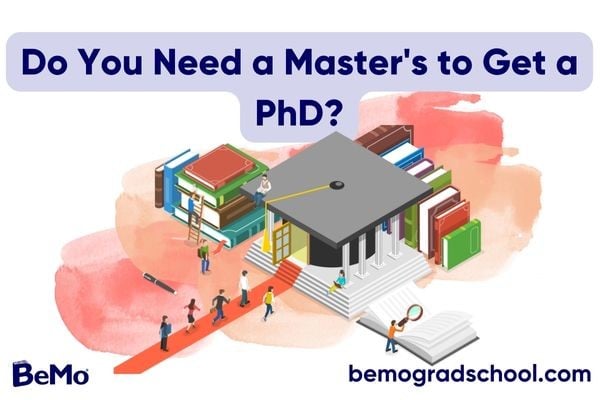
Do you need a master’s to a get a PhD? No! A master’s degree is not a universal requirement for all PhD programs, and there are some types of programs which waive the master’s degree. If you’re interested in how to get a PhD but you want to shorten the time it takes to graduate, you do have options. While they are not numerous, there are excellent, accredited PhD programs in almost every field which do not require a master’s degree. In this blog, learn how you can get a PhD without a master’s, what your program options are and what you need to do to get accepted.
>> Want us to help you get accepted? Schedule a free strategy call here . <<
Listen to the blog!
Article Contents 9 min read
Do you need a master’s to get a phd.
The short answer: No . It is possible to get a PhD without a master’s degree, as there are programs which accept applicants who have not completed a master’s degree first.
We’ll explore these in more detail below, but first we’ll look at whether a PhD is the right path for you and why you might want to skip the master’s.
If you’re weighing your options for graduate school and deciding between a master’s or PhD , you’re probably wondering which one is the best choice for you and how to complete your studies in the fastest way possible. If your end goal is a PhD, you might be looking at a very long educational commitment. How long does it take to get a PhD? On average, 4-7 years, and this timeline doesn’t include the time it takes to get a master’s degree, another 1 or 2 years.
Chances are, you’ve finished 4 years of an undergraduate degree or you’re still earning your bachelor’s degree and thinking ahead a few years. The idea of 5+ more years of schooling can be a little intimidating, so you may be wondering how to get a PhD without a master’s.
There are few different types of PhD programs that do not require a master’s degree first. Note that all of these programs DO require a complete bachelor’s degree to apply! We’ll explain what your options are for completing a PhD without a master’s below.
1. Direct Entry PhD Programs
Direct Entry PhD programs allow students with a Bachelor’s degree to apply directly for a PhD in their field, without first completing a master’s degree. They are typically 4-5 years long, so they are appealing for students who want to earn a graduate degree and shave a few years off their timeline to graduation. Many of the top colleges in the US and the universities in Canada offer these types of programs. However, these programs are far from the easiest PhD programs to get into ! They are quite competitive and require specific admission requirements you’ll need to meet in order to be considered.
2. Online PhD Programs
Online PhD programs are growing in both number and popularity. Online PhD programs offer students greater flexibility while also shortening the time it takes to get a PhD. Most online PhD programs are between 2 and 3 years, although there are 4-year programs and even 1-year online PhD programs out there. Depending on your area of study, an online PhD may not be an option, but there are fully accredited options out there. And, some online PhD programs don’t require a master’s degree.
Curious about whether a Master’s or PhD is right for you? Check out this video:
Direct Entry PhD Programs
Direct entry PhD programs can be a great option for students who want to jump straight from a bachelor’s degree to a PhD. This type of program is available in almost all disciplines, including business, computer science, education and nursing. These are also sometimes called accelerated PhD programs, designed to be 4-5 years and on your way to graduation sooner. As long as you meet all the admission requirements, you can apply to direct entry PhD programs without a master’s degree.
Universities with Direct Entry PhD Programs
Here are a few examples of top universities with direct entry PhD programs. This is not an exhaustive list, as there are many similar programs across the US and Canada!
Pros and Cons of Direct Entry PhD Programs
Since direct entry PhD programs accept students with a bachelor\u2019s degree only, the admission standards are naturally a little higher. Your academic record needs to be above average, and the minimum GPA to apply is usually 3.0 or even higher in some cases. On top of a stellar GPA, you also need to write the GRE, complete an application package and demonstrate you are ready for intense graduate level study without having completed a master\u2019s degree. ","label":"Cons","title":"Cons"}]" code="tab1" template="BlogArticle">
Admission Requirements for Direct Entry PhD Programs
Along with the usual PhD admission requirements, direct entry PhD programs may only admit students with only a bachelor’s degree if they demonstrate exceptional academic ability and extensive prior research experience. Here are some of the additional requirements you can expect for direct entry PhD programs:
- 4-year undergraduate degree (minimum GPA may be required)
- GRE (or GMAT, program-dependent)
- Research Experience
- Previous publications
- Excellent letters of recommendation
- Letter of Intent
- Research interest statement
- Grad school career goals statement
- Research Proposal
- Grad school interview
There are dozens of different online PhD programs out there, ranging from 1 to 4 years long. The length of time it takes to complete an online PhD program depends on the discipline. Online PhD programs are more common in fields like nursing, health sciences, business, education, criminology, engineering and computer science, though there are many more.
Many online PhD programs also have a hybrid learning option, where students can learn both online and in-person at the university. This gives you a little more flexibility and allows you to get the best of both worlds from an online PhD and a traditional one.
Online PhDs are also a good option if you want to do a PhD without dissertation or thesis, since a few of them don’t require it.
Universities with Online PhD Programs
Here’s a short list of universities that offer online PhD programs, but keep in mind there are many more out there.
Pros and Cons of Online PhD Programs
Lack of funding and networking : 100% online programs of course, lack the opportunities for in-person interaction and have fewer opportunities for professional networking in your field. There\u2019s also fewer funding options for online PhDs, if the program is not fully funded. ","label":"Cons","title":"Cons"}]" code="tab2" template="BlogArticle">
Admission Requirements for Online PhD Programs
Online PhD programs, or hybrid programs, will have the same admission requirements as most graduate school programs. On top of these, you will typically need a GPA of 3.0 and above, and you may need to complete specific prerequisite coursework.
The specific admission requirements will vary a little by program, but in general there won’t be anything unexpected.
If you’re thinking of applying to a PhD without a master’s degree, there are pros and cons to this decision. You may be wondering if not having a master’s degree will hurt your chances of getting accepted to a PhD program, or if it affects your chances of finding a job after graduate school.
While you can certainly choose to skip the master’s and still achieve your career goals with a PhD only, you should carefully consider your decision before you start applying to be sure it’s the right path for you.
Before you dive into PhD applications, consider the following things:
1. A PhD might not be necessary
Earning a PhD might not actually be necessary or especially helpful to achieving your career goals. A PhD is a research-focused, academic pursuit, so if your aim is to transition from academia to industry or find an industry job after a PhD , you might benefit more from earning years of work experience rather than years of education. There is always a possibility to pursue a PhD after a few years of working in your field if you change your mind.
In other cases, a master’s degree might give you the better mix of education and skill to achieve your career goals. And, a master’s degree is shorter and less expensive than a PhD, not to mention less competitive to get into.
On the other hand, if you are a true academic and want to find a job in academia , fast-tracking your PhD is a good way to do so!
2. A Master’s degree can give you a competitive edge
Having a master’s degree can actually give you a competitive edge for getting into some PhD programs. For example, even a direct entry PhD program that considers exceptional undergraduate students might give preference to a student with a full master’s degree if there is limited space in a program. Not to mention, not all PhD programs accept you without a master’s degree, and the ones that don’t require one will be more challenging to get into.
Completing your master’s first can also give you better and more funding opportunities for your PhD, if your program is not fully funded, since some scholarships and loans are only open to current graduate students.
3. A PhD is a huge commitment
Getting your PhD is a huge commitment of both your time and money, so you need to be certain it is the right choice for you before you put in the effort of applying and completing a program. Jumping from a bachelor’s right into an advanced graduate program is a big shift in the level of academic rigor and expectations, and not every student will be prepared for it.
Undergraduate students normally will not have the research experience or professional skillset that you would develop throughout the course of a master’s program. So the adjustment to a PhD program may prove to be too big a gap.
A master’s program is a sort of test-drive for graduate school study, introducing you to a higher level of education, research and learning. It’s also shorter and less expensive. So, you may not lose a much from changing your mind and dropping out of a master’s program as you will dropping out of a PhD.
Keep in mind that if you want to pursue advanced study in a new field or change jobs after working as an undergraduate, it will be difficult to find a PhD program that will accept you without a master’s degree.
Do you need a master’s to get a PhD? No, it is not strictly necessary. However, there are some advantages to earning your master’s degree first, and the path from bachelor’s straight to PhD is a little more challenging.
For those who are willing to commit and put in the hard work, the benefits of fast-tracking your PhD are definitely worth it, but you should carefully explore all your options and be sure of what requirements you need to meet first.
No. It is possible to get a PhD without a master’s degree. Some PhD programs accept exceptional students with a bachelor’s degree or allow you to earn a master’s and PhD in a combined, accelerated program.
While it is possible to skip your master’s and go straight to a PhD, you should consider what the options are, what the admission requirements are and whether graduate school is the right choice for you. Earning a PhD is a big commitment, so you need to be sure it’s a worthy pursuit!
Yes, direct entry PhD programs are highly competitive and the admission standards are usually quite high. These types of programs usually accept exceptional students who stand out from the crowd.
The shortest PhD programs are 1-year online degrees. While there are not many available, it is possible to earn a PhD in select fields, completely online, in around 12 to 18-months.
Traditional PhDs take between 4-8 years to complete. Direct entry PhD programs are usually 4-5 years, and online or hybrid PhDs can be between 2-3 years.
Yes, there are dual degree programs that allow you to earn a master’s alongside a PhD, shortening the traditional timeline and saving a bit on tuition costs.
A master’s degree is a graduate program that focuses on teaching you practical, career-related skills and knowledge. It’s designed for you to learn more advanced skills in your field so you can potentially increase your earnings in the workforce and pursue higher-level positions. A PhD is a heavily research-focused graduate degree. PhD students contribute new knowledge to their field through critical research and writing.
It can be tough to decide whether to stop at a master’s degree or go forward and pursue a PhD. The decision will come down to your personal choice, the requirements for your chosen career or position, your budget, timeline, and whether you feel you can and want to commit to extensive graduate studies.
Want more free tips? Subscribe to our channels for more free and useful content!
Apple Podcasts
Like our blog? Write for us ! >>
Have a question ask our admissions experts below and we'll answer your questions, get started now.
Talk to one of our admissions experts
Our site uses cookies. By using our website, you agree with our cookie policy .
FREE Training Webinar:
How to make your grad school application stand out, (and avoid the top 5 mistakes that get most rejected).
Time Sensitive. Limited Spots Available:
We guarantee you'll get into grad school or you don't pay.
Swipe up to see a great offer!
2024 Best Universities That Offer PhD Without Masters
It may sound like a dream, but universities that offer PhD without a masters do exist.

Imagine fast-tracking your way to becoming a doctor in your field, skipping the traditional master’s step, and diving straight into deep, meaningful research. This article is your guide to understanding this unconventional yet rewarding path.
Editorial Listing ShortCode:
We’ll explore the ins and outs of taking this leap to help you decide if this bold academic journey aligns with your aspirations and goals.
Universities That Offer PhD without a Masters Degree

Can you get a doctorate without a masters? For some, the answer is yes. In PhD programs without masters requirements, you can start working on your PhD right after earning your bachelor’s degree. This means you can focus on intensive research and specialized studies sooner.
It’s a path that may suit you if you’re keen on deepening your knowledge and expertise without the intermediate step of a master’s program. Typical eligibility criteria for these programs include:
- Strong undergraduate academic record
- Research experience
- Recommendation letters
- Well-crafted statement of purpose
- Standardized test scores (if required)
According to the Bureau of Labor Statistics (BLS) , higher education often leads to better job prospects and higher earnings. This route not only saves time but can potentially set you up for promising career opportunities.
You’ll be expected to start your research early. This could be a great fit if you’re already clear about your academic interests and ready to commit to a rigorous research schedule.
Advantages of Fast-Tracking to PhD
Deciding to go straight for a PhD without a master’s degree can be a big step toward your future goals. Here are some potential benefits for considering PhD online programs without masters requirements:
- Speed up your journey : By skipping a master’s program, you may get to your career goals faster.
- Save money : Like any college program, earning a master’s degree can be expensive.
- Immediately deep dive into your interests : Passionate about your field? You may jump straight into advanced studies and research.
- Unique opportunities : These programs can help open doors to rare and exciting research chances, placing you at the forefront of innovation early in your career.
- Stand out : Earning a PhD is a powerful statement about your ambition and skills.
Stepping directly into a PhD program may allow you to fast-track your ambitions and pave the way to a fulfilling future.
Disadvantages and Challenges of Direct PhD Programs

Jumping into a PhD without a master’s degree takes courage. It’s crucial to know the hurdles that might pop up before you start researching PhD programs online without masters requirements.
These are some challenges you may encounter:
- Rapid pace : You’ll likely face a steep learning curve without the preparation a master’s program can provide.
- Immediate research pressure : You’re expected to start producing original research right away.
- Fewer networking opportunities : Skipping a master’s program means missing out on making those crucial academic connections that may be valuable down the line.
- Tougher funding : Funding opportunities often lean toward those with master’s degrees, so securing financial support might be more challenging.
- Self-doubt : Without the stepping stone of a master’s, you might question if you’re ready for this big leap.
According to the NSCRC , with more people pursuing advanced degrees, the academic world is getting more competitive. Navigating these challenges requires resilience and a clear vision of your goals. Choosing a direct PhD route is about weighing these hurdles against your determination and passion for your field.
How to Choose a Doctorate without a Masters Degree

Choosing the right PhD program is key. Here are some important factors to consider:
- Accreditation : Accreditation is like a quality stamp for the program, ensuring that it meets certain academic standards. You can find more information at the S. Department of Education – Accreditation .
- Financial aid and scholarships : Cost can be a big factor, and having financial aid or scholarships can make a huge difference. You can visit the FAFSA website for more information.
- Faculty expertise : You want to learn from the best and ensure they have experience in your area of interest.
- Research opportunities : This is your chance to get hands-on experience in your field.
- Program structure and flexibility : It’s important to consider class schedules, online vs. in-person options, and the balance between coursework and research.
Choosing the right doctorate program is a personal decision that will shape your academic journey. Taking the time to weigh these factors carefully can help you find the best choice to fit your goals and needs.
Applying to Universities That Offer PhD without a Master’s Degree

Applying for a PhD program is like presenting your academic story. Here are some tips to help make each part of your application a testament to your passion and potential:
- Your research proposal : This is a window into your interests. Show your enthusiasm and readiness for the field by making it clear, engaging, and indicative of your ability to bring fresh ideas.
- Letters of recommendation : These are your personal champions, so choose mentors or professors who know your strengths intimately and can confidently vouch for your PhD readiness.
- Showcase your research journey : Research experience is a crucial part of your narrative. Highlight your involvement in projects, papers, or presentations.
- Ace the interview : Be prepared to discuss your motivations, research interests, and how you envision your growth in the program.
Your application is a holistic reflection of your academic identity. It should showcase your achievements and excitement for research and knowledge.
Do You Need a Masters to Get a PhD?

While many paths to a PhD traditionally start with a master’s, there’s a growing trend of programs allowing students to jump straight into doctoral studies from their bachelor’s programs.
This option may be perfect for those who are clear about their research interests and ready to dive into academic exploration. If you’re passionate, determined, and have a clear vision for your research, a direct route to a PhD may be your path forward.
Universities Offering Online PhD Without Masters Degree Programs
Methodology: The following school list is in alphabetical order. To be included, a college or university must be regionally accredited and offer degree programs online or in a hybrid format.

Capitol Technology University offers a PhD in Technology with two pathways for students who may not hold a master’s degree. Applicants may either already hold a doctoral degree or earn an MS in Research Methods while earning their PhD. CapTech’s program is fully online, and residencies are not required.
Capitol Technology University is accredited by the Middle States Commission on Higher Education.

Clemson University offers a PhD in Healthcare Genetics and Genomics. Applicants must hold at least a bachelor’s degree in a related field with a 3.0 cumulative GPA. Applicants who hold a master’s in the field may be given preference. The program is fully online, and courses are in a synchronous format.
Clemson University is accredited by the Southern Association of Colleges and Schools Commission on Colleges.

Indiana University offers a PhD in Music Therapy through the Purdue School of Engineering and Technology at IUPUI. Students who do not already hold a master’s degree can earn a Master’s in Music Therapy through the program. The program requires the completion of 90 credit hours, including a dissertation, and is fully online.
Indiana University is accredited by the Higher Learning Commission.

Students who do not hold a master’s degree may apply for a PhD in Computer Science through Mississippi State University. The program is fully online and does not require campus visits. Courses follow a semester schedule, and there are start dates in the fall and spring. Applicants are not required to submit GRE or GMAT scores.
Mississippi State University is accredited by the Southern Association of Colleges and Schools Commission on Colleges.

Students who do not hold a master’s may earn a PhD in Computer Science through Nova Southeastern University’s bachelor’s track. The program requires the completion of 66 credits and is available fully online or on campus. The program has start dates in August, January, and May and follows a semester schedule. NSU is an NSA-designated school.
Nova Southeastern University is accredited by the Southern Association of Colleges and Schools Commission on Colleges.

Saybrook University offers a PhD in Clinical Psychology program that is fully online. Students who do not hold a master’s degree must complete 103 to 109 credits to graduate, while those who do have a master’s in a related field must complete 100 to 106 credits.
The program can typically be completed in 5 years. It offers several specializations that may be declared, including Applied Psychophysiology, Creativity Studies, and Jungian Studies.
Saybrook University is accredited by the Senior Commission of Western Association of Schools and Colleges.

The University of Arizona offers a PhD in Nursing to students who hold a BSN through its BSN-to-PhD program. The program is mostly online, but short residencies are required. The program can potentially be finished in 4 years when attended full-time. Courses follow a semester schedule, and the completion of 79 credits is required to graduate.
The University of Arizona is accredited by the WASC Senior College and University Commission.

The University of Central Florida offers a BSN-to-PhD in Nursing program for those who do not hold a master’s degree in nursing. All coursework is online, but short intensives on campus are required throughout the program. Applicants are not required to submit GRE scores.
The University of Central Florida is accredited by the Southern Association of Colleges and Schools.

The University of Oklahoma offers a PhD in Nursing with a fast-track to PhD option for students who have a BSN but not a master’s degree. All coursework is fully online. The program can potentially be finished in 36 months, and there are start dates in the fall, spring, and summer. The completion of 78 credits is required to graduate.
The University of Oklahoma is accredited by the Higher Learning Commission.

The University of Wisconsin–Milwaukee offers a fully online program for a PhD in Nursing. Students with only a BSN may apply but must complete 15 additional credits before entering the program. The program starts every other year during the summer semester. It can potentially be completed in 3 years.
UWM is accredited by the Higher Learning Commission.
Advance Your Career: Starting Your PhD without a Masters Degree

Starting your PhD journey without a master’s degree can be a bold step forward in advancing your career, particularly if you pursue some of the highest paying doctorate degrees . It’s a path that speaks to those ready to dive into deep academic waters, driven by passion and a clear vision for their future, with the added potential of high financial rewards in cutting-edge and high-demand areas.
If this resonates with you, you can start exploring accredited universities that offer this opportunity, including those providing online PhD programs for working professionals . These flexible programs are designed to accommodate your busy schedule, allowing you to balance your professional responsibilities with your academic pursuits. Your aspirations and determination may fast-track you on your way to becoming an expert in your field!

You're viewing this site as a domestic an international student
You're a domestic student if you are:
- a citizen of Australia or New Zealand,
- an Australian permanent resident, or
- a holder of an Australian permanent humanitarian visa.
You're an international student if you are:
- intending to study on a student visa,
- not a citizen of Australia or New Zealand,
- not an Australian permanent resident, or
- a temporary resident (visa status) of Australia.

Can you do a PhD without a master’s degree?
Study tips Published 5 Apr, 2022 · 6-minute read
If you want the most straightforward answer to the question ‘can you get a PhD without a master’s degree’, it’s yes. Should you apply to study a PhD without a master’s though? Let’s unpack that.
There are quite a few entry requirements you need to meet to apply for a Doctor of Philosophy (PhD). At the core of it, all these requirements are about proving you’re ready to embark on the long (3-4 years full time) and challenging – but incredibly rewarding – process of conducting research and writing a thesis. PhD prerequisites are there to assess your preparedness for this type of study.
So, let’s have a look at what the PhD prerequisites are in Australia and the questions we’re commonly asked about them.
Can I do a PhD without a degree?
In Australia, you’ll need to have completed a degree (undergraduate or postgraduate) relevant to your proposed research topic and approved by the university to be considered as a candidate. However, the good news is, for those of you wondering ‘can you get a PhD without a bachelor’s?’ the answer is yes – it is possible at some universities.
Say you finished high school and went straight into the workforce. You built experience in your field over years of hard work. After a while, you decide that you’d like a qualification to solidify your knowledge and skills, or to upskill in your area and open even more doors. So, you apply for postgraduate studies.
Many universities in Australia will consider applicants for postgrad study (typically graduate certificates) based on proof of extensive professional experience and other post-secondary studies (certificates from TAFE, for example) in a relevant field, rather than the traditional completion of bachelor’s level studies.
Admission into a graduate certificate without a bachelor’s degree is very much dependent on your study area of choice and the institution at which you wish to study. Always check the specific prerequisites of the institution and program.
In most cases, if you want to study a PhD and you don’t have a bachelor’s degree, but you do have a lot of industry and research experience in your field, you’ll need to start your journey by enrolling in a graduate certificate and working your way up to a master’s and then a PhD. It’s possible to get into a PhD program with a graduate diploma (and no bachelor’s or master’s degree), but you’ll need extensive documentation proving former research experience to support your application – plus a decent GPA. This type of application is assessed on a case-by-case basis by some universities and can be extremely competitive.
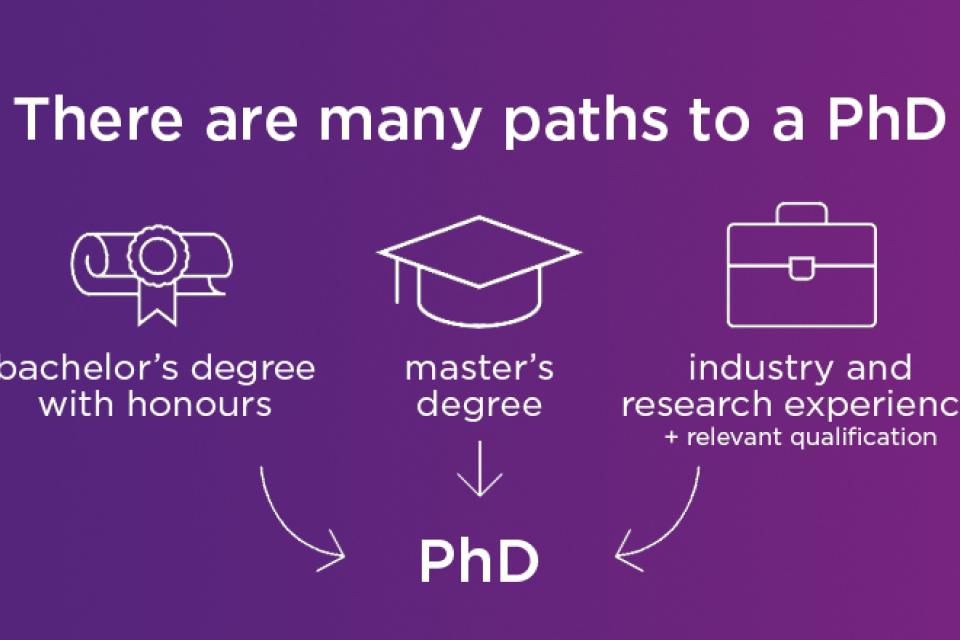
Do you need a master’s for a PhD?
As we said earlier, no – you don’t need a master’s to apply for a PhD. And if you're wondering more specifically ‘is an MPhil required for a PhD?’, the answer is also no. It may make logical sense at face value to complete a Master of Philosophy (MPhil) and then go on to study a Doctor of Philosophy, but in reality, it tends to work a bit differently.
All these types of postgraduate degrees and higher degrees by research can be a little confusing to keep track of, so let’s break it down into simpler terms.
So, here’s how some of the pathways through these degrees work.
- Some students decide to study and complete a Master of Philosophy, as it’s shorter than a PhD but still allows them to delve into a research project and produce a thesis (~40,000 words).
- Other students begin studying an MPhil then find they’d like to take their research further and apply to upgrade to a PhD program, adding a few more years onto their studies and producing an 80,000-word thesis.
- Many students aim big from the get-go and apply directly to a PhD program after having completed either a bachelor’s degree with honours or a master’s by coursework.
This is by no means an extensive list of ways in which you can order your studies; it’s just a few of the most common paths taken by university students interested in postgraduate studies and higher degrees by research.
The benefits of studying a master’s before a PhD
Now we’ve established that you can apply to study a Doctor of Philosophy without a master’s degree, let’s address the next big question: should you? Here are just a handful of the reasons why completing a master’s before moving onto a PhD is generally a good idea:
- It gives you a competitive edge compared to other applicants.
- It will provide you with a taste of what it’s like to conduct long-form research and reveal what it takes to be a good PhD student .
- You'll have a chance to explore a research topic to see if there’s enough scope to turn it into your PhD, or you may find offshoot topics that could be explored in more detail.
- You'll experience what it’s like to work with a supervisor and better understand if this process suits your personality type.

Can I go straight from bachelor’s to PhD?
Yes. Most universities will accept applications from students who have a bachelor’s degree with honours (typically at least IIA) as their highest level of completed study. Some universities may accept a bachelor’s degree without honours but with several years of relevant research experience, or a bachelor’s degree without honours but followed by a relevant graduate certificate or graduate diploma.
As we've emphasised above, there are definite benefits to completing further studies after your undergraduate degree to prepare you for your PhD. It’s understandable that you might want to fast-track your way to your Doctor of Philosophy, but remember that going in as prepared as possible will help you get the most out of your research.
If you don’t want to commit to a master’s program after your undergraduate degree but you still have your heart set on a PhD, talk to your course convener about fitting research units into your study plan during your bachelor’s program. Completing a graduate certificate or diploma following your bachelor’s, with a focus on the research area you wish to pursue with a PhD, will help you get a clearer idea of potential research topics too.
There are opportunities for undergraduate and postgraduate students to apply for one of UQ’s summer and winter research programs . These programs can help to boost your knowledge and skills in research and your field of study – and better prepare you for PhD studies.
When considering whether or not to apply for a PhD without a master’s degree, remember that the process is competitive, and it can take time to find the right supervisor . Having a master’s degree could put you ahead of other applicants and secure you that valued place as a PhD candidate.
Want to know more about how a PhD works? How do you find a supervisor? What are the best tips for writing your proposal? Find answers by reading our comprehensive guide: How to get a PhD.
Share this Facebook Twitter LinkedIn Email
Related stories

How long does a PhD take?
3-minute read
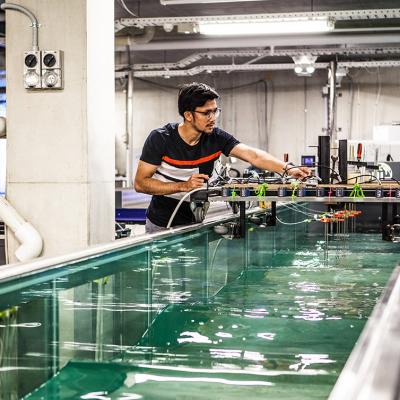
Can I do a PhD while working?
4-minute read

What makes a good PhD student?

How to get a PhD scholarship or funding

- Skip to primary navigation
- Skip to main content
- Skip to primary sidebar
- Skip to secondary sidebar
- Skip to footer
career-advice.jobs.ac.uk
A PhD Without A Masters Degree
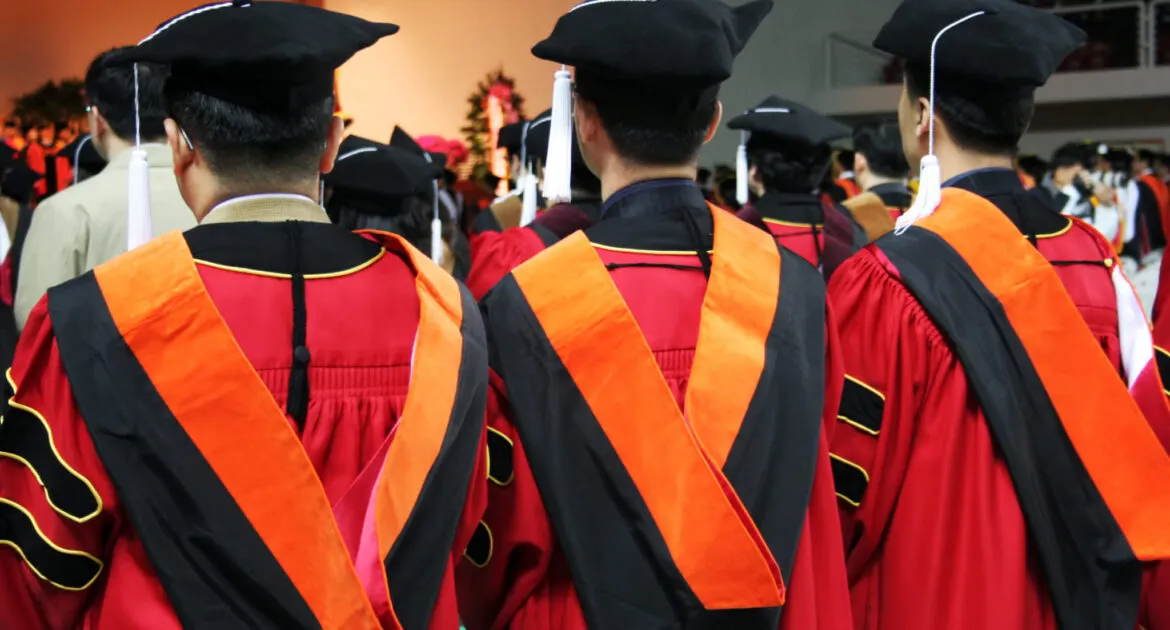
The PhD usually came after the Bachelor’s degree for many years in the United Kingdom. There was no real need to successfully gain a Master’s degree before embarking on this mammoth task of empirical research. Whilst some undergraduate degrees still lead to a Master’s qualification, and many people still complete Master degrees, it is possible to do a PhD without a Masters degree .
Firstly, your creative ideas are novel which allows for innovative, fresh approaches, in addition to exerted interest and enthusiasm for an area of study. Secondly, a Master’s degree can be quite expensive and although there are bursaries and schemes available they often still require costly personal financial contributions. Thirdly, pursuing a PhD without a Master’s degree reduces the amount of time on your studies, allowing you to follow a desired career path that motivates and excites you.
Disadvantages
The Master’s degree exists to show that the student can study at a higher level and this qualification allows you to practice the necessary research skills. This also determines if committing to a large research project is right for you. Additionally, the Master’s dissertation forms a part of the PhD in several British universities, so you are potentially gaining one to two extra years to make your original contribution to the field of study.
Applications
As with any PhD application , it is important to check your eligibility with the universities you have chosen to apply to. Different institutions have varying regulations, and in some cases, a Master’s degree might be compulsory. Also, make sure you have lots of evidence in your application about why you would make a good doctoral student by presenting concrete examples of your work at the equivalent of Master’s degree level. Additionally, be clear that you are motivated and determined to add to a body of knowledge through innovative, empirical research that requires stamina, hard work, determination and collaboration.
Coping strategies
The first few months can be overwhelming, but it is important to remember that you have been accepted as a doctoral student. This confirms that a panel of experts believe that you can achieve such a prestigious degree.
In your first term try and reread your research proposal once a week and review it critically. The nature of research is that it changes but it is also useful to remember what you proposed to do. Critical thinking is essential throughout the process.
Avail of the PhD support within the university. Regularly meet with supervisors and other doctoral researchers as support is necessary during this journey, especially in year one. Sign up to university workshops about PhD research – many run one-day skills sessions covering everything from communication to project managing. As a PhD student, you are part of a community of other doctoral researchers and this can be a great source of advice and wisdom, plus a great way of meeting new people.
In your first term, you should have regular and consistent supervision meetings. This allows your research team to set clear time goals and confirm milestones which you can work towards.
And remember, with consistent hard work, dedication, determination, collaboration and a critical mind, you will achieve your PhD .
Find your PhD here .
What is a PhD and Why Should YOU do one?
What did you think of our article? - please rate
Share this article
Dr Denise White FRSA
Dr Denise White FRSA is a multi-award-winning intellectual disability and music expert. Having over 25 years’ experience in the field of early years, primary, post-primary, special educational needs, further and higher education, Denise is known for her innovative and creative teaching methods that transforms lives. She is an advocate for inclusive and community-based ethical learning and teaching models.
She is a passionate education advocate with the talent to develop inspiring hands-on lessons that will capture a student’s imagination and breed success.
Known as ‘The Music Doctor’, Denise is an Author at Bookhub Publishing. Her Music Doctor Series will launch in March 2019. Denise is also a Speaker, Trainer, Consultant, Mentor and Researcher.
Web: www.themusicdoctor.co.uk
Twitter: @_TheMusicDoctor
Reader Interactions
You may also like:.
21st April 2020 at 11:04 am
To whom it concerns. During this enforced Covid Lockdown I explored the possibility of undertaking a Master’s in English Literature by distance learning. My Thesis has explored the topic of “Discrimination of Women in the Literature because of their gender”. As yet I am not affiliated with a University as my exploration is in earl. y stages. I have a Primary Honour’s Degree from my local University in Galway, Ireland. My query is can I bypass the Master’s and undertake a P.H.D in English Literature? I am familiar with the steps necessary to undertake the proposed course of study.
19th December 2020 at 6:03 pm
Good evening. Hope you are doing well inshaAllah. My wife wants to apply for a PHD program nearby london area. Do you have any suggestions on where to apply? She will need to apply for a student visa first in order to enrol into a graduate school. How can she apply for a student visa ? What type of governmental funding is available to her wife? My wife is a USA citizen and she already has her undergraduate degree from New York university. Plz advise me which university will be the best for my wife to enrol into a PhD program.
3rd March 2021 at 5:57 pm
I want to register fie for PHD, i only have law degree, i have no Masters degree
15th January 2022 at 3:30 pm
I want to apply for PhD. I have already have and degree and postgraduate diploma. Please advise
15th January 2022 at 3:32 pm
I have already a degree and a post graduate diploma
11th April 2022 at 10:13 am
Please advice to me where to start. I have degree in Public Administration and Political since graduated 2012 on South East European University in Skopje, in 2012 I make NARIC UK Recognized my foreign degree in UK comparable. In 2018 I have applied on South East European University Master in Business Administration and Management – Sub field Management. And I have finished all my exams on master degree but started this Pandemic Period with covid19 and I have no chance to make defend my master decertation in public defend. I am here in UK more then 10 years I am passion to study. I have EU Settled Status. I was in search for Integrated PhD ( Master and PhD ) in one. Because I have transcript but I don’t hold certificate in Master degree make me break this process. Please advice to me how to continue.
4th February 2023 at 6:47 pm
I am interested in completing a PhD, but only have a Social Science BA 2:1. Is this possible?
14th November 2023 at 2:38 pm
Firstly, you will have to improve your spelling and grammar before you apply for a PhD degree (even more so since you are a lawyer)!!!
Leave a Reply Cancel reply
Your email address will not be published. Required fields are marked *
Save my name, email, and website in this browser for the next time I comment.
Please enter an answer in digits: two + seven =
This site uses Akismet to reduce spam. Learn how your comment data is processed .
Do You Need a Masters To Get a PhD in 2024?
If you have ever considered taking the leap and applying for a PhD, then you know it can be quite a daunting task. Even more challenging is targeting a PhD without masters – after all, isn’t a master’s degree usually the path to take before embarking on doctoral studies?
But let’s be honest; if you’re feeling brave enough to attempt such an ambitious feat, then why let the lack of prior qualifications hold you back? Should you attempt to go after your doctorate without first earning your master’s?
Here we discuss the pros and cons of skipping the master’s step in pursuit of a PhD and how having a master’s degree or not can influence admissions decisions when applying to doctoral programs.
Differences Between Terminal and Non-Terminal Masters Degrees
It’s important to understand that a PhD without masters is not feasible. All PhDs require the completion of a master’s degree first. The question that often arises is whether to enroll in a terminal or non-terminal master’s degree before earning a PhD. What are the differences between the two? A master’s degree is simply terminal or non-terminal, depending on whether or not it leads directly to a PhD.
Terminal master’s degrees are for those who plan to pursue a career in research or academia and provide students with advanced knowledge within a specific subject area via the completion of a thesis or project. Other terminal master’s degrees (the MBA , MPA , or MPP for example) are for professionals who want an advantage in their current field, or those looking to shift careers entirely. They provide students with practical skills that they can apply directly in the workplace. In general, these programs take one to two years to complete.
Non-terminal masters degrees
Non-terminal master’s degrees are part of an existing doctoral program. With employers now looking for candidates that possess highly advanced knowledge in their respective fields, many universities found it necessary to combine their doctoral and master’s programs into one degree to better prepare their graduates for the future workplace. Ultimately, this move towards combining degrees allows universities to better manage their resources by not having to maintain two separate degree programs.
Non-terminal master’s degrees may involve completing coursework and passing an exam to earn the degree. Alternatively, some programs require writing a shorter thesis than what terminal master’s degree programs require. This can help students complete their master’s degree within one year and continue to pursue their doctoral studies.
However, it is important to note that although their goal is to lead graduates back to the job market, terminal master’s degrees are not necessarily the end of the road for many students. Many graduates of terminal master’s degrees end up applying and enrolling in doctoral programs successfully.
So what are the pros and cons of applying to PhD programs with or without a master’s degree? Does having a master’s degree increase your chance of admittance into a PhD program or not?
PhD Without Masters: The Pros
Enrolling in a PhD program without having obtained a master’s degree is becoming increasingly common, and in many cases can be beneficial for those who would like to pursue further education. By skipping the master’s program, students can save time and money by bypassing an additional level of schooling.
Not having to go through the time-consuming process of obtaining a master’s degree with a full thesis cuts down the time it takes to complete the entire program significantly. This allows applicants to pursue their career goals sooner and gain experience in their field faster. This can be especially helpful for those who already have extensive experience or knowledge about their chosen field of study.
Finally, the PhD without masters is less expensive overall since applicants don’t have to pay the additional tuition or fees associated with completing a standalone master’s program. This route is especially beneficial for those students who do not have access to scholarships and other financial aid opportunities. Since many PhD programs are fully funded in the U.S., enrolling in a PhD program without a master’s degree is a great way to reduce costs.
PhD Without Masters: The Cons
While it is possible to apply to a doctoral program without having completed a master’s degree, there are a number of potential disadvantages associated with this approach. One is that holders of a master’s degree often have more background knowledge in the field they wish to pursue at the PhD level, which can lead to superior academic performance and faster completion of the program.
Additionally, universities may set higher standards for applicants who lack a master’s degree and can be less willing to admit them into their doctoral programs because they may lack certain skills or prerequisites needed for successful completion. Many competitive funding sources require applicants to possess a master’s degree to be eligible for grants or fellowships, which could limit opportunities for those who do not hold master’s degrees.
Further insights
In addition, a PhD is a complex and demanding academic program that requires a great deal of dedication, hard work, and research. If you are unsure if academia is really what you want, enrolling in a PhD program without first obtaining a master’s degree can be an unwise decision as you may not understand the full scope of what you’re getting into or have the necessary skills to succeed.
Additionally, since most PhD programs require much time and energy , taking on such an undertaking without having thoroughly thought through one’s career plans could result in wasted resources if you decide that the field isn’t right for you.
Before enrolling in any doctoral program, it is important to carefully consider your long-term career objectives and make sure you have realistic expectations about the work and commitment it will take to complete the program. If your career goals remain uncertain, then taking a master’s degree first might be an appropriate path to explore before deciding whether or not to pursue a PhD.
When Is a PhD Without Masters a Good Idea?
In our opinion, your academic performance and career goals should determine if it is worth it or not to apply directly to doctoral programs without a master’s degree. If your heart is set on becoming an academic, you have already completed an undergraduate honors thesis with high marks, and have a high GPA and excellent standardized test scores ( GRE ), then it may be a good idea to apply directly to a PhD program instead of enrolling in a master’s program.
Your grades and research experience make you competitive and will allow you to compete with other solid applicants.
Additionally, if you already have a clear vision of your research goals and the potential impact your project can make on the field, skipping a master’s program and going straight into a doctoral program could be beneficial by allowing you to finish earlier and become the professor you were meant to be!
When Is a PhD Without Masters a Bad Idea?
If your grades are less than stellar and if you are unsure about your academic career plans, then enrolling in a terminal master’s degree is a great option to simultaneously upgrade your profile as an applicant and provide you the opportunity to explore the world of research a little bit more before the plunge into doctoral studies
Earning a master’s degree before applying to a PhD program is a great way to increase your academic credentials. If you have a so-so undergraduate GPA , acing your master’s degree classes is a great way to offset your undergraduate academic performance. It will not only boost your GPA, but also make up for eventual lower standardized test scores.
Having a master’s degree does not guarantee admission to a doctoral program, but it can influence admissions decisions and make it easier for someone to be admitted into the program. Many doctoral programs prefer applicants who already hold a master’s degree because they have had the opportunity to refine their research skills, develop their knowledge in a specific area of study, and gain additional experience working in the field.
For example, the thesis project involved in a master’s program provides the opportunity to delve deeper into a particular field that you’re interested in. It’s a good way to ensure that both research-based work and your chosen field of study are suitable for you before committing to a PhD that may take several years to complete. Another benefit of pursuing a master’s degree thesis project is that it provides the chance to collaborate closely with a supervisor.
This experience can help you grasp the ideal communication frequency and student-supervisor dynamic involved in pursuing a PhD. You can use this new knowledge to find the most appropriate supervisor for your PhD project application.
Bottom Line
Ultimately, when deciding whether to pursue a master’s degree during your doctoral studies, it is important to assess the practicality of its application. There are advantages and disadvantages in either scenario; those already holding a master’s may find themselves more prepared for the application process than those without one.
Whichever route you choose, be sure to do your research thoroughly and understand the admissions process before diving head-first into the program of your choice. Keep in mind that resources like our graduate school application services exist to help make this step easier.
So don’t be afraid to reach out and get the support you need! With dedication and hard work, you can achieve whatever goals you set for yourself. Next time you’re considering skipping a master’s program in your pursuit of a PhD, remember that no feat is too great if you stay focused and don’t lose sight of your ambitions! Got questions? Sign up for a consultation . It’s FREE!
With a Master’s from McGill University and a Ph.D. from New York University, Dr. Philippe Barr is the founder of The Admit Lab . As a tenure-track professor, Dr. Barr spent a decade teaching and serving on several graduate admission committees at UNC-Chapel Hill before turning to full-time consulting. With more than seven years of experience as a graduate school admissions consultant, Dr. Barr has stewarded the candidate journey across multiple master’s and Ph.D. programs and helped hundreds of students get admitted to top-tier graduate programs all over the world .
Subscribe to my YouTube Channel for weekly tutorials on navigating the PhD application process and live Q&A sessions!
Share this:
Join the conversation.
- Pingback: Average Age of PhD Student: How Old Is Too Old? - The Admit Lab
- Pingback: Average Age of PhD Student: How Old Is Too Old? | Development Mi
- Pingback: Getting a PhD Without Research Experience -
- Pingback: PhD Admissions Secrets Revealed -
Leave a comment
Leave a reply cancel reply, discover more from admit lab.
Subscribe now to keep reading and get access to the full archive.
Type your email…
Continue reading
50 Best Doctorate Degrees Online No Dissertation Required [2024 Doctoral Programs]
Skip your dissertation with an accredited no dissertation doctoral program!

In the past, the majority of doctoral programs always required students to write a dissertation. Now, instead of spending years working on a dissertation, a growing number of universities offer doctoral students an alternative to the dissertation process: a capstone project.
Editorial Listing ShortCode:
Universities Offering No Dissertation Online Doctorate Degree Programs
Methodology: The following school list is in alphabetical order. To be included, a college or university must be accredited and offer degree programs online or in a hybrid format.
These programs can work around your existing obligations such as family or work commitments, and will allow you to advance in your career and contribute to your field in ways that don’t require a massive research paper and the massive amount of dissertation research that goes along with it!
List of Doctorate Degrees without Dissertation Requirements
Here is a list of doctoral programs that don’t require a dissertation. Instead, you complete a capstone project or a doctoral study project.
Click on your desired field of study to jump to that section:
- Business A dministration
- Co mputers & Information Technology
Criminal Justice
Healthcare administration, homeland security, public administration, public health.
Like dissertations, capstone projects are a culmination of your education. They usually involve some original research or some type of applied practical knowledge in your field. It all depends on the school and program.
Be sure to check out the specializations available, as well as the particular requirements for each of these non dissertation PhD programs to be sure you select the one that will best suit you and help you achieve your goals.

The Doctor of Business Administration offers specializations in accounting and focuses on domestic and international managerial accounting.
According to the U.S. Bureau of Labor Statistics (BLS) , financial managers are in high demand with a mean salary of $134,180.
In addition, the need for financial managers in leadership positions is growing by 17% over the next ten years. And if you’re interested in academia, the need for business educators is growing at the rate of 6% over the next ten years.
Business Administration

A Doctor of Business Administration is the highest academic degree program in the business world and is ideal for business professionals in corporations, the public sector, or academia.
Quite a few Online DBA concentrations are available without involving the dissertation process and associated research. Instead, you complete a capstone project or doctoral study project. These projects provide real-world learning and leadership opportunities.
An online DBA program focuses on advanced decision-making and leadership skills, integrating business theory and applied research. The capstone project or doctoral study project will relate to the specialization you have chosen and prepare you for that particular career path.
Most online DBA programs allow you to tailor your education by selecting the specialization that best suits your interests and aspirations.
Below are a few common DBA concentrations available without a dissertation.
- Entrepreneurship
- General Business
- Healthcare Management
- Human Resource Management
- Information Systems Management
- International Business
- Project Management
- Supply Chain Management
Whether you work full time as a business consultant or manager, as an entrepreneur, as a school administrator or in government, programs like this may help you take your education – and your career in business – to the next level.
Computers & Information Technology

A doctoral degree in computer information systems or information technology trains you for senior management roles in corporations, government agencies, and non-profits.
The Doctor of Information Technology and the Doctor of Business Administration are applied doctorate degree programs.
These online doctorate programs can prepare you for top-level positions such as IT strategist, IS manager, chief information officer, or even college faculty member.

Earning your doctorate in criminal justice gives you the tools needed to analyze and operate in the social sciences in areas such as law and society, crime, policing, homeland security, and criminal behavior.
Criminal Justice programs are often offered as follows:
- Doctor of Philosophy (Ph.D.) in Criminal Justice
- Doctor of Psychology (PsyD) in Criminal Justice
- Doctor of Business Administration (DBA) in Criminal Justice
- Doctor of Management (DM) in Criminal Justice
- Doctor of Criminal Justice (DCJ)
Of these five degree program types, the PhD in Criminal Justice is the most common. However, the other four types of doctorates are professional doctorates and are more likely to require a capstone project instead of a dissertation.

Having an advanced level degree in education can really set you apart and open new doors. That’s where Doctor of Education programs come into play.
More and more universities are now offering online doctoral programs in education without dissertation requirements, which means you may be able to complete the program sooner, without neglecting your other obligations, and without writing that massive research paper!
Unlike a PhD in Education which is heavily focused on research, a Doctor of Education (EdD) program is more focused on the real world practical application of knowledge.
With the creation of the Carnegie Project for the Education Doctorate (CPED) which looks at EdD curriculum and its development, an increasing number of universities are adopting a more practical approach in their curriculum.
For this reason, Doctor of Education programs are starting to offer capstone projects (or similar applications) as an alternative to the lengthy, research-intensive dissertation process.
There are two main education doctorate options: a Ph.D. in Education and Doctor of Education (EdD). So which is the best choice?
A Ph.D. in Education is ideal for someone interested in academic and/or research positions in higher education, or in a corporate, military or government position, but typically requires a traditional dissertation.
Doctor of Education (Ed.D.) programs, however, focus more on developments in the field and prepare you to work in a classroom or for a school district. Quite a few schools now offer online Ed.D. programs without dissertation requirements.
The University of Southern Mississippi, for example, offers a part-time, fully online EdD program that culminates in a capstone project in educational administration instead of a traditional dissertation process.
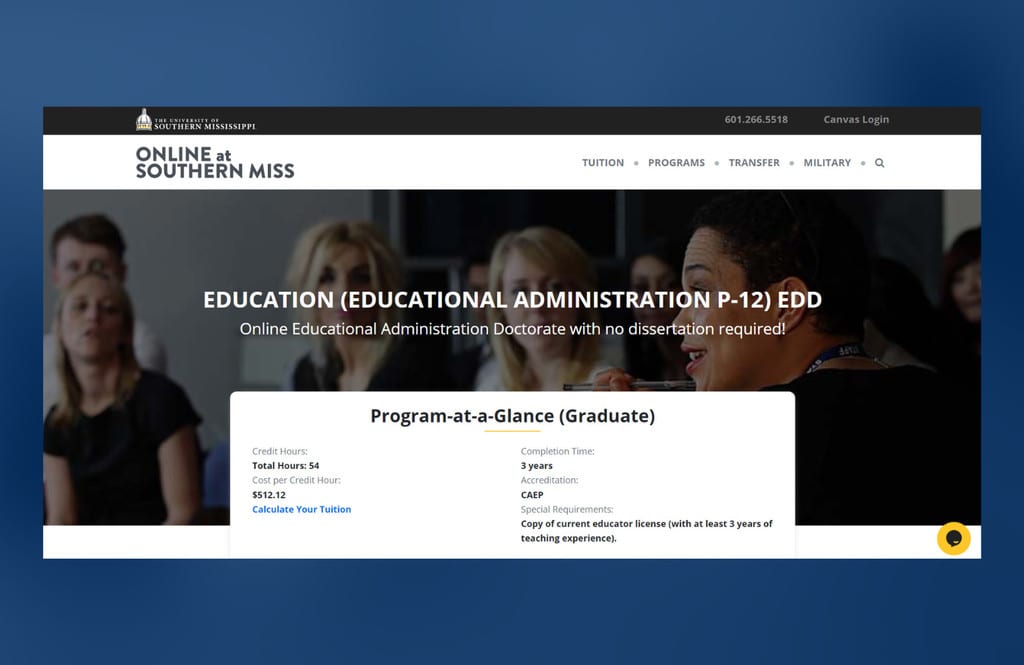
Be sure to select one of the doctorate degree without dissertation programs that will work with your lifestyle and commitments, and help you achieve your long-term career goals.

The Doctor of Business Administration offers specializations in finance and focuses on international finance, entrepreneurial finance, law, and compliance.
In addition, the need for financial managers is growing by 17% over the next ten years. And if you’re interested in academia, the need for business educators is growing at the rate of 6% over the next ten years.

The Doctor of Business Administration with a specialization in Healthcare Management provides advanced training in organizational leadership, professional management, and human resource development.
DBA in Healthcare Management degree programs will prepare you for senior-level leadership positions in the healthcare field.
Explore cutting-edge strategies in leadership and decision-making while gaining a deep understanding of both theory and practice.

With the global increase in terrorism and natural disasters, the need for homeland security leaders well-trained in crisis planning is on the rise.
The Doctor of Business Administration with a specialization in Homeland Security addresses global terrorism, risk analysis, policy challenges, organizational leadership, and emerging trends.
Courses include an in-depth look into homeland security policies, homeland security business planning, and business infrastructure vulnerability analysis, among others.

A Doctor of Business Administration with a focus in management is designed to prepare you for strategic leadership. Not only will you develop advanced research skills, but you will also have the opportunity to learn new ways to address complex problems within your industry.
A Doctor of Business Administration is a professional doctorate that can help prepare you for high-level management positions in corporations, non-profits, or government agencies.
According to the U.S. Bureau of Labor Statistics, the median annual wage for management professionals is $109,760, which is the highest wage of all major occupation groups.

Instead of following a traditional dissertation process in your studies, you will complete a DNP practicum.
Nurses participating in the DNP program will learn to take evidence-based research and put it into practice to improve patient outcomes.
This DNP can be completed in as little as two years:
- Online Doctor of Nursing Practice (DNP)
Leadership and innovation are also areas of focus to help encourage innovation and positive change in the healthcare system.

The Doctor of Public Administration is an applied doctorate that gives you the in-depth knowledge you need to lead effectively and help create positive change in non-profits, government agencies, or similar organizations.
Doctor of Public Administration degree programs can help prepare you for a career in academia or to work in the public, private, or non-profit sectors.
The Bureau of Labor Statistics shows high-demand in the field. For example, the need for social and community service managers will grow by 15% in the next ten years.

The Doctor of Public Health is a professional doctorate degree intended for individuals already working in the field of public health.
The field is interdisciplinary and covers topics ranging from advocacy and marketing to communications and leadership.
A number of concentrations are available such as epidemiology and biostatistics. Career options vary but can include health officer, health policy advisor, and community health director.

The Doctor of Psychology is a professional degree program that covers both Clinical Psychology and Counseling Psychology.
There are a few online PsyD programs that require no dissertation .
Some common fields of specialization include:
- Behavioral Health Leadership
- Behavioral Psychology
- Child, Adolescent and Family Psychology
- Clinical Psychology
- Couple or Family Therapy
- Forensic Psychology
- Health Psychology and Behavioral Medicine
- Mental Illness
- Neuropsychology
Instead of a dissertation, some PsyD programs (like Capella) allow you to complete a capstone project related to your field of specialization.
What is a Doctoral Dissertation?
A doctoral dissertation, the culmination of most doctoral degree programs, is a substantial written document in which the student uses the teachings and skills gleaned from the entire program to develop and discuss an original concept, theory or practice that will help advance the field.
Writing a dissertation is no easy feat! They are typically hundreds of pages long, and students work on them for over a year, reviewing research, conducting experiments and analyzing data.
Because this project is daunting, demanding, and often requires years of research, many universities have come up with alternatives that allow students to demonstrate their knowledge and provide worthwhile contributions to their field without completing a traditional dissertation.
What Are All But Dissertation Completion Programs?
“All But Dissertation” (ABD) completion programs, also known as PhD completion programs, are designed to help students who have completed all the requirements of a doctoral degree program except the dissertation.
Quite often, students work diligently through the coursework of their doctoral program, but fall short when it comes to completing the required dissertation. According to the Council of Graduate Schools , only about 56% of those who start a doctoral degree program earn their doctorate or PhD within 10 years. Completing a dissertation is an enormous project that entails extensive research — and life, family, careers and other obligations sometimes get in the way.
For example, the Dissertation Completion Pathway (DCP) offered by National University is one example of a structured program that transfers credit for prior academic coursework and provides guidance and mentorship as you work to finish your dissertation. This type of program typically takes 2-3 years.
Is a Dissertation Required for a PhD?
Not always. In the past a dissertation was required for a PhD, but a growing number of institutions have started to offer online doctoral programs no dissertation.
Instead, students may complete a capstone project to demonstrate their knowledge and provide new contributions to the field. This may be a combination of a research paper and fieldwork, or perhaps you might do some consulting work at a functioning business. However, it most cases, it will require considerably less independent research than what is required for a dissertation.
Capstone projects vary from school to school, and program to program.
One of the benefits of non-dissertation doctorate degrees is that you can finish in less time. Check out our guide on accelerated online doctoral programs for a deeper look.
Is Financial Aid Available for Online PhD Programs?

Looking to manage the costs of an online PhD program? You’ve got options.
First up, the FAFSA – it’s not just for undergrads and can open doors to federal grants and loans. Don’t overlook state financial aid either; many states offer loan programs that might be more budget-friendly than private loans, helping to reduce the cost of repayment.
Also, keep an eye out for scholarships and grants tailored for online doctoral students. These can take into account your academic achievements and work experience.
Many universities now offer affordable online programs, designed to provide quality education without the hefty price tag of traditional on-campus degrees. For more specific details and info about reducing these costs, the financial aid office at your university is a great resource. They can guide you through the maze of options and help you find the best fit for your financial situation.
Federal Financial Aid
First, you should submit the Free Application for Federal Student Aid (FAFSA) , just like you did when you were an undergraduate student. This will open the door to federal grants and loans, as well as many other resources.
State Financial Aid
In addition to federal financial aid, almost 40 states offer student loan programs. Like Federal loans, the interest rates offered by most state programs are generally less than those charged by private student loan lenders. You can get more info on individual State Financial Aid programs here.
Scholarships and Grants for Online Doctorate Programs
Additionally, online PhD and doctoral students are often eligible for grants, fellowships, and scholarships. These may be available through the school, large corporations, or professional associations that take your work experience into account.
You can generally also get more info from the financial aid office at the university or college you choose to learn more about institutional funding and financial aid opportunities.
Can You Get a No Dissertation Doctorate Online?
Yes! A growing number of reputable, accredited colleges and universities offer non-dissertation doctorate programs. We’ve compiled a list of universities offering online doctorate degrees without dissertation requirements in the next section.
Are There Any PhD Programs Without Dissertation Requirements?
Yes, there are quite a few doctoral programs without dissertation requirements, but PhD programs without dissertation requirements are few and far between. In these cases, instead of the dissertation most commonly used in a Doctor of Philosophy (PhD) program, a capstone project is required to help you put your new-found skills to good use.
In the past, dissertations were required so that you could demonstrate your knowledge and expertise in your field. But universities have started to realize that there are quite a few ways you can do that.
As you can see with the online DBA programs , a few colleges are no longer requiring dissertations. They allow you to complete a doctoral capstone project instead. No, it’s not technically a dissertation. But you do prove that you have acquired a high level of expertise in your field of study.
Higher education is continuing to change at a rapid pace. As another example, a number of PhD programs without GRE requirements are appearing.
How Many Credits Do PhD Programs Require?
Most PhD programs require between 54 and 90 credit hours. That’s between 18 and 30 courses. This is true for both campus-based PhD programs and online PhD programs.
Let’s look at one of National University’s online programs as an example. The online DBA in Accounting is 54 credit hours and consists of 18 courses (most courses are 3 credit hours).
In contrast, if you attend a state university campus program like the University of Illinois, the PhD in Business requires 64 credit hours (around 21 courses), provided you already have your master’s degree.
Are There Any EdD Programs Without Dissertation Requirements?

Yes, there are a number of EdD programs without dissertation research papers. Here is a list of Ed.D. concentrations / specializations without a dissertation requirement: Online Doctor of Education list .
Do All Doctoral Programs Require a Dissertation?
No. A wide-range of doctoral programs do not have a dissertation. Instead, graduate schools allow you to complete a capstone project which focuses on solving a real-world problem.
You can also earn your doctorate through an accredited online program if you don’t want to attend on campus.
Is a PhD Program Without a Dissertation Respected?
A dissertation allows students the opportunity to demonstrate expertise in their field of study through extensive research and an associated dissertation research paper.
In certain fields, a dissertation will be the measure of quality. This is true for academia should you ever want to be a tenured professor at Harvard. But if that’s not your goal, doctoral programs in higher education, leadership, or business administration are reputable – provided you earn your doctorate from a graduate school with regional accreditation.
Can I Get an Online Doctorate Degree Without a Dissertation?
Yes. There are dozens of online doctorate degrees with no dissertation being offered from accredited universities. The most common doctoral degree programs are the Doctor of Education, Doctor of Business Administration, Doctor of Psychology, and the Doctor of Nursing Practice.
Are There Any 18 Month Doctorate with No Dissertation Programs?
Yes. Some online PhD no dissertation programs can be completed in as little as 18 to 24 months.
To finish in a short time like this, you will need to be enrolled full time and progressing through your doctorate program courses successfully. You will also need your capstone project to be approved in a timely manner. Again, in order to complete your doctorate in less than 18 months, you’ll need to enroll in a PhD without thesis or dissertation requirement.
Are There Any PhD Without Dissertation Programs Online?

Yes, a number of universities offer online doctoral degree programs without dissertation to help working professionals juggle full time jobs with their studies. We’ve compiled a list of them above. As more universities offer no dissertation doctorates, we will update the list.
It’s worth noting that while these programs do not require traditional dissertations, there will usually be a research project (usually known as a Capstone) through which you demonstrate what you have learned. Each program should detail the capstone experience requirements and the opportunities you will have while enrolled.
A growing number of universities allow you to complete your program as a full time, working professional from the comfort of your own home!

- Best Online Programs
- Best Campus Programs
- Behavior Psychology
- Clinical Psychology
- Counseling & Mental Health
- Developmental Psychology
- Educational Psychology
- Forensic Psychology
- General Psychology
- Health Psychology
- Industrial/Organizational
- Marriage Family Therapy
- Social Psychology
- Social Work
- Educational Psychologist
- Forensic Psychologist
- Clinical Psychologist
- Family Psychologists
- Marriage Family Therapist
- School Psychologist
- Social Psychologist
- School Counselors
- Neuropsychologist
- I/O Psychologist
- Sports Psychologist
- Addiction Counselor
- Mental Health Psychologist
- Counseling Psychologist
- Occupational Psychologist
- Child Psychiatrist
- Connecticut
- Massachusetts
- Mississippi
- New Hampshire
- North Carolina
- North Dakota
- Pennsylvania
- Rhode Island
- South Carolina
- South Dakota
- West Virginia
- PsyD vs PhD
Getting Your Psychology PhD or PsyD Without a Master’s
Completing a doctoral degree in psychology can be a crucial educational step toward a challenging but rewarding career in the field, whether working with patients or contributing to the field in other ways.
With multiple possible degree paths that end in similar outcomes, it can be difficult for students to understand the best route to take, depending on the education they already have. Specifically, for students who have only a bachelor’s degree, many worry their options for a psychology Ph.D. or a Psy.D. may be limited.
So let’s explore what students need to know about getting a psychology Ph.D. or Psy.D. without having a master’s degree.
Psychology Doctorate Options
At the end of both a Doctor of Philosophy (Ph.D.) in Psychology and a Doctor of Psychology (Psy.D.), an individual will have earned a doctorate and, depending on their personal preferences and professional goals, could use the “Dr.” title. But the details of the degrees are quite different, and which is right likely will depend on the individual and their career dreams.
In general, Psy.D. degrees are more appropriate for those who want to work directly with patients or clients, while Ph.D. degrees may appeal more to those who want to work in academic research to help advance understanding of human behavior.
SEE ALSO: Online Accredited PsyD Programs
Of course, that’s a guideline rather than a rule, and students who earn either type of degree can work in many different areas of psychology, or may earn enough experience and education to overlap a few areas of the field.
Importantly, though, it’s more common for Psy.D. tracks than Ph.D. tracks to include supervised professional experience as part of the doctoral program, which may impact a graduate’s ability to earn professional licensure (more on that later).
Starting Point
Regardless of what comes next, prospective psychology doctoral students will need to earn a bachelor’s degree. Ideally, they’d major in psychology in college, though there are a handful of other subjects that could suffice, depending on their doctoral program.
These include:
- Social work
- Anthropology
Many doctoral programs will accept applicants who have only a bachelor’s degree, but there are several considerations that may impact whether doctoral candidates can apply with only an undergrad degree:
- Length of doctoral program: Shorter Ph.D. or Psy.D. programs, meaning those that are designed to be completed in only a few years, will usually require students to complete a master’s degree before they apply. For example, an optional completion timeline offered in the Psy.D. program at the University of Indianapolis accepts only those applicants who have already completed a master’s degree in the field, and the admissions office prefers those who already have some practical experience under their belts. UIndy’s 3+1 track can be completed in only four years, while most psychology doctorates will take at least five and sometimes closer to seven years.
- Master’s en route: In most longer-timeline programs, students will earn a master’s degree on their way to getting their doctorate. For example, the Tufts University Ph.D. in Psychology will last at least five years, and students will complete a master’s degree at the end of their second year in the program.
- Prior coursework: In many psychology doctoral programs, students aren’t required to have majored in psychology at any level but rather it’s necessary for them to have completed certain coursework integral to the study of psychology. At the Rutgers Graduate School of Applied and Professional Psychology , Clinical Psy.D. applicants are required to have completed undergrad courses in introductory psychology, statistics, abnormal psychology and biological bases of psychology, in addition to at least one course in cognitive, developmental and/or social psychology, psychology and perception, conditioning and learning, and psychology of personality.
SEE ALSO: List of Combined Master’s and PsyD Programs
In every state, a series of rules and guidelines apply to the licensure of psychologists. States vary quite dramatically in what they require, but a psychology doctorate is generally the most important educational step.
However, professional experience is also required in every state, usually both before and after earning a doctorate. That means that students who attend Psy.D. or Ph.D. programs that don’t include a supervised professional experience period, such as an internship or other professional practicum, may not satisfy the licensure requirements in their state.
Additionally, many states require students who attend programs that are not accredited by the American Psychology Association to provide a detailed list of all coursework at the doctoral level, and students may have to take remedial graduate courses if their programs don’t meet the standards.
Earning your doctoral degree in psychology, whether by completing a Ph.D. or a Psy.D., is the single best way to earn licensure and become a professional psychologist. While there’s no single possible way of getting there, students who don’t have a master’s degree, and have no need to earn one, likely will find many options for doctorate programs.
- Accreditations & Authorizations
- Campus & Sites
- Campus Calendar
- Diversity, Equity, & Belonging
- Eastern Magazine
- Vision, Mission & Faith
- National Recognition
- News & Events
- Offices & Centers
- Strategic Alliances & Partnerships
- Student Consumer Information
- University Leadership
- 2022-27 Strategic Plan
- Majors and Programs
- Traditional Undergraduate
- Online Undergraduate
- All Online Programs
- Summer Online Courses
- Colleges & Seminary
- Templeton Honors College
- Our Faculty
- Around the Area
- Career Development
- Commuter Services
- Counseling & Academic Support
- Faith & Practice
- International Student Services
- Multicultural Opportunities
- Residence Life
- Scholarship Cohorts
- Student Activities
- Student Development
- Current Students
- Men's & Women's Sports
- Athletics Photos
- Athletics Videos
- Fitness Center
- Intramurals
- Undergraduate Admissions
- Graduate & Online Undergraduate Admissions
- Transfer Student Admissions
- Financial Aid Office
- Military Students
- Prospective Students
- Welcome Cabrini Students
- Eastern FastPass!
- For Prospective Students
- For Current Students
- For Parents
- For Faculty/Staff
- Work at Eastern
- Request Info
Eastern Launches 100% Online PhD in Professional Practice

St. Davids, PA: Eastern University is excited to announce it is now offering a PhD in Professional Practice , designed to provide experienced professionals from diverse career paths an opportunity to carefully examine and thoughtfully assess the outcomes and professional contributions of their careers.
The degree program is 100% online and can be completed in 3-5 years at the affordable cost of $450 per credit, totaling only $27,360 for the entire program. Students with a theology degree may also qualify for Advanced Standing and a lighter credit requirement. The program offers individualized mentorship from a doctoral supervisor, leading students on an intellectually stimulating path that is personalized towards their own professional goals and personal development.
Housed within Eastern’s Palmer College, this unique program focuses on the scholarly analysis of work within current theoretical and theological frameworks, industry best practices, vocational understanding of professional practice, and theological reflection. The combination and integration of theoretical knowledge and practical expertise allows students to dive deeper into sectors that demand a strong sense of purpose.
“Beyond the confines of professional disciplines, the Ph.D. in Professional Practice is a celebration of your cultivated wisdom and the legacy you're destined to leave,” says Wynand de Kock, Program Director. “Specifically designed for seasoned professionals at the pinnacle of their careers, it invites individuals who aspire to transcend their current professional boundaries and leave an indelible mark on their respective fields.”
A PhD in Professional Practice opens doors to diverse careers, including senior practitioner roles, consulting positions, academic research opportunities, teaching positions, leadership roles, and more.
Learn more about Eastern’s PhD in Professional Practice .
About Eastern University
Eastern University is a Christian university enrolling approximately 7,500 students in its undergraduate, graduate, and seminary programs. The university’s main campus is located in St. Davids, PA, with many programs available online. Eastern’s core values of faith, reason, and justice are woven into all of its educational programs. For more information visit eastern.edu or contact Ally Rosario, Director of Marketing & Communications: [email protected] .

1300 Eagle Road St. Davids, PA 19087-3696 610-341-5800
- Emergency Information
- Website Feedback
Eastern University does not discriminate on the basis of race, color, national and ethnic origin in its educational policies, admissions policies, scholarships, loan programs, athletic and other programs. Read Nondiscrimination Policy.
- Website Policies
- Privacy Statement
- Site by: Eastern Standard
Options for Medical Students Without Residency Matches
Medical students without residency matches have options such as research or an additional degree.
Options Without Residency Matches

Getty Images
One option for students who don't get matched to a residency program is repeating an additional year of medical school to strengthen their knowledge and experience.
Key Takeaways:
- Medical residencies provide crucial training and hands-on experience.
- A small percentage of applicants don't receive a match.
- Med students who don't get matched can explore several options.
Mention “Match Day” to a medical school student and you’re sure to stir up a little anxiety. It's the date when they find out whether they are assigned to a residency program. While getting matched is exciting news, not getting matched to a residency program is not the end of the road, experts say.
Match Week occurs the third week of March, when applicants take part in the National Resident Matching Program. Match Week ends on Match Day, when students find out if and where they have an offer to do residency. In 2024, a record high year for applicants, U.S. M.D. seniors matched to first-year residency training positions at a rate of 93.5%, and at a rate of 92.3% for D.O., or doctor of osteopathic medicine , the program reports.
“Residency serves as extra training for specializing and becoming truly comfortable with treating patients,” says Niki Grotewold, an admissions expert at Inspira Advantage, an admissions consulting firm focusing on graduate programs in health care.
It’s also a crucial part of medical training, giving hands-on experience required for board certification and becoming an attending physician, he says. While it is discouraging to not get matched, “continuing to exhibit grit and pursuing career goals is key," he says.
Students who don’t get matched to a training position still have several pathways, says NRMP president and CEO Donna L. Lamb. These include pursuing and interviewing with unfilled programs, “remaining in medical school to pursue research or other enrichment opportunities in their preferred specialty, or returning to school to pursue another degree,” she says.
Here’s a closer look at options for medical students who don't get matched with a residency.
Interview With Unfilled Programs
Medical students can try to obtain a position through NRMP’s Supplemental Offer and Acceptance Program, or SOAP. That process takes place over several days and allows unmatched students to compete for unfilled residency positions.
SOAP “requires immediate action, as it passes within the first week after the initial match process," says Dr. Jordan Frey, founder of The Prudent Plastic Surgeon, which aims to help doctors and other medical professionals improve their financial well-being.
Experts say some students may want to consider programs in rural regions , or matching with a different medical specialty choice. The most competitive specialties include dermatology, plastic surgery and neurosurgery, while the least competitive specialties are family medicine, internal medicine and pediatrics, Grotewold says.
Pursue Research or Other Enrichment Opportunities
Grotewold says students also have the option of matriculating into postgraduate training programs . “Examples include preliminary medicine or surgery positions, transitional-year programs or research fellowships .”
For example, a transitional year allows students to repeat an additional year of medical school to strengthen their knowledge and experience. Whether students pursue a transitional year or fellowship, experts say they can gain a more competitive edge in a particular specialty.
Grotewold says students can also engage in research or additional clinical experience. Students can remain in contact with professors or mentors at their medical school and see if they can participate in a research project in a field of medicine they’re particularly interested in. Experience in a clinical setting can include working as a scribe for a doctor or in electronic health-record training.
Pursue Another Degree or Career Path
Another option is to pursue another degree on top of your medical degree, like an MBA or Master of Public Health , to increase your chances of getting matched next time. You could opt to choose an alternative career path within the health care field, such as public health, health care administration, medical education, the pharmaceutical industry, research or consulting, Grotewold says.
There are many nonclinical medicine options to consider, Frey says, including consulting, medical writing and editing, medical sales, medical device development “or various medical careers like a poison information specialist that do not require residency.”
Frey says students who are undecided between a clinical and nonclinical career may want to continue to pursue a clinical career.
“The reason I say this is because it is very easy to leave clinical medicine for nonclinical medicine. But it can be very difficult to leave a nonclinical career and then match into a clinical training position,” Frey says.
Apply Again Next Year
While you may not have matched this time around, there’s always next year. Experts say students can spend a year building their resumes to reapply to residency programs next cycle.
“Take a year to regroup, strengthen your application, shore up on research, improve test scores and reapply the following year,” Frey says. “This is what many unmatched applicants choose to do.”
Grotewold says the system for matching "is not perfect and sometimes a perfectly good student can be left behind," but it’s important for students to move forward by strengthening their resume and reapplying rather than sacrificing their dream of becoming a doctor .
"Many unmatched students go on to residency and have very successful medical careers by continuing to be determined, strategizing and not giving up,” Grotewold says.
NRMP recommends unmatched students begin with consultation with a mentor or adviser to discuss what pathway might be best and to get help strengthening their applications, Lamb says.
“Whichever pathway they choose, applicants are always welcome to participate in a future NRMP Match to try and secure training.”
Where Famous Docs Earned Medical Degrees

Popular Stories
Morse Code: Inside the College Rankings

Applying to College

Applying to Medical School

Best Global Universities

Medical School Admissions Doctor

2024 Best Online Programs

Compare online degree programs using the new U.S. News rankings and data.
You May Also Like
Religious accommodations on campus.
Anayat Durrani April 25, 2024

Ways to Maximize Campus Life
Anayat Durrani March 14, 2024

Disability Accommodations in College
Anayat Durrani Feb. 23, 2024

6 Traits of Successful MBA Candidates
Anayat Durrani Feb. 15, 2024

U.S. and Europe Degree Differences
Anayat Durrani Feb. 13, 2024

International Freshmen Mistakes to Avoid
Anayat Durrani Jan. 18, 2024

Waitlists and International Students
Anayat Durrani Dec. 21, 2023

Mental Health Tips
Anayat Durrani Dec. 18, 2023

Duolingo English Test
Anayat Durrani Dec. 8, 2023

Huge Rise in International Students
Anayat Durrani Nov. 28, 2023

Weigh Study Abroad Options
Anayat Durrani Nov. 17, 2023

Benefits of a Liberal Arts Education
Anayat Durrani Nov. 9, 2023

Tips for International Student-Athletes
Anayat Durrani Oct. 16, 2023

Ways to Utilize EducationUSA
Anayat Durrani Oct. 5, 2023

How International Students Can Transfer
Anayat Durrani Sept. 15, 2023

International Student Scholarship Guide
Anayat Durrani Sept. 7, 2023

U.S. Education and Foreign Students
Anayat Durrani Aug. 11, 2023

Understanding Academic Integrity
Anayat Durrani Aug. 9, 2023

Reasons to Choose a Catholic University
Anayat Durrani July 14, 2023

College vs. University
Kelly Mae Ross and Anayat Durrani July 7, 2023

Bust six myths about higher education and it will reveal the undeniable value of college
University of tennessee system president randy boyd addresses six misconceptions about higher education. his assessment: it's invaluable..
Randy Boyd is president of the University of Tennessee System
The perception of the value of higher education has been declining, and while there are clearly many areas to improve upon, there are many “myths” that just need busting.
Here are just a few of the most common myths.
Myth 1: No one is going to college anymore.
Enrollment in four-year colleges across the state of Tennessee has increased by 2.5% in the last five years.
At the University of Tennessee System during that same time period, enrollment has increased by almost 14%, from 52,000 students to 59,000. Our goal is to grow enrollment to 71,000 students by 2030!
Myth 2: All the job openings are for trade certificates, not for four-year degrees.
During the last decade, the number of jobs that only require a high school diploma declined by 90,000.
How a pair of socks inspired me to study and make a career in the STEM field
Jobs that require a technical certification increased by 49,000.
The pundits are right: we do need more welders, mechatronics, etc. and those are great jobs. However, during the same time, demand for jobs requiring a four-year degree increased by 361,000 – more than seven times the number needing a certificate.
We need all of the above, but clearly, we need to continue to produce even greater numbers of teachers, nurses, engineers, computer scientists, etc.
Myth 3: Tuition is increasing at a faster rate than inflation.
During the last five years, tuition across all the UT campuses increased on average by 1%. UT Knoxville went four years with no tuition increase at all.
During the last five years, inflation has increased from 1.4% in 2020 to 3.2% in 2024, an increase of 129%.
Thus, a college degree costs less today than it did five years ago relative to inflation.
Myth 4: If you go to college, you will graduate with a mountain of debt.
Across the UT System, 47% of all students graduate debt free. Of those that do graduate with debt, they average $26,000 in debt – down 4.4% from five years ago.
Myth 5: College is so expensive only the rich can afford to go.
With the UT Promise scholarship program, families with a household income of $75,000 or less can go to any UT campus completely free of tuition and fees.
This means that 66.7% of all Tennesseans can attend for free! In addition, each UT Promise scholarship recipient is matched with a volunteer mentor to help them be successful.
Myth 6: You can make as much, or more, money without a degree.
On average, people who have earned a bachelor's degree make $1.5 million more in their lifetime than someone with a high school diploma, and $1.1 million more than someone with an associate degree.
A college degree is an essential tool in helping prepare Tennesseans for the future.
It is up to all of us to continue to “bust” these myths and remind our friends and families that a college degree is affordable, valuable and attainable.
Supporting higher education is good for you and good for Tennessee.

IMAGES
VIDEO
COMMENTS
It's almost a sure pass to a doctoral programme. 3. A Master's is the only way to a PhD in a new field. It does not matter where you want to pursue a PhD, if you don't have the right academic background in a connected subject area, your chances of being accepted to a PhD are little to zero. So, if you want to change careers and pursue a ...
Without a Masters degree you will have limited (if any) experience of maintaining a supervisor relationship, conducting original research and writing up your findings - all important parts of doing a PhD. But it is important to remember that while it might initially feel overwhelming, that's not to say you won't catch up.
Yes, it's possible to get a PhD without first having a Masters degree. The conventional route for someone who earns a PhD is to pursue a Bachelor's degree, followed by a Masters degree and then a PhD. However, several students opt to bypass a Master's degree by enrolling onto a doctoral programme as soon as they complete their ...
Similarly, you can get a PhD in the Ohio State University's chemical engineering programme without having done a master's. Across the pond, the University of Cambridge can accept students without a master's degree, where they'll be placed in a probationary year before progressing into their dissertation. As you can see, various routes ...
Yes, it is possible to get a Ph.D. without having a Master's degree first. Conventionally, if you wanted to pursue a Ph.D., you would first get your Bachelor's degree, then your Master's degree, and then apply for a PhD. However, there are a few unconventional ways of getting a Ph.D. Firstly, you can opt to bypass your Master's degree ...
No, a master's degree is not always required to earn a PhD. A number of schools may allow you to enroll in a PhD-level program without having previously obtained your master's degree if you meet the school's and program's admission criteria. In some cases, Ph.D. programs may allow you to skip the need to obtain a master's degree.
Jan 25, 2024. Yes, it is possible to earn a PhD without a master's degree. Though the traditional path entails completing a master's program before embarking on a doctorate, some schools and programs offer options to skip the master's entirely. Actually, in select cases, it's the preferred approach. Below, we'll share four common ...
Studying a PhD program without a master's will typically add an extra year to the usual timeline, as you'll need to spend an additional year either completing an MPhil or as part of an integrated PhD program. Therefore, as most doctorates take three to five years to complete, a PhD without a master's will usually take between four and six ...
A direct PhD program, sometimes referred to as an integrated or combined PhD program, is a doctoral-level academic program that allows students to pursue a PhD degree without first obtaining a master's degree. In traditional PhD programs, students typically complete a master's degree before embarking on their doctoral studies.
PhD programs without masters degree programs exist and often save candidates plenty of time, effort, and money. Pursuing a master's degree first is the usual path, but many people choose to chart their own path by applying to PhD programs without masters degree.
Direct Entry PhD programs allow students with a Bachelor's degree to apply directly for a PhD in their field, without first completing a master's degree. They are typically 4-5 years long, so they are appealing for students who want to earn a graduate degree and shave a few years off their timeline to graduation.
Saybrook University offers a PhD in Clinical Psychology program that is fully online. Students who do not hold a master's degree must complete 103 to 109 credits to graduate, while those who do have a master's in a related field must complete 100 to 106 credits. The program can typically be completed in 5 years.
Without the experience of academic research during a Masters, you may find you have a steeper learning curve during the first year of your PhD . Some of these skills include how to maintain the student-supervisor relationship, how to conduct original research and write up your findings. If everyone around you has that academic experience ...
Yes. Fields where you can get a Ph.D. without a master's include clinical psychology and government. These and other programs combine the master's and Ph.D. curricula. Not all universities or academic departments let you earn a Ph.D. without a master's degree. However, they may let you apply if you hold a master's in a different field.
In most cases, if you want to study a PhD and you don't have a bachelor's degree, but you do have a lot of industry and research experience in your field, you'll need to start your journey by enrolling in a graduate certificate and working your way up to a master's and then a PhD. It's possible to get into a PhD program with a graduate diploma (and no bachelor's or master's ...
Importantly, you don't need a master's degree to apply for the Psy.D. program. In fact, most of the students enrolled in Regent's Psy.D. in Clinical Psychology do not hold master's degrees. The admission requirement is a completed four-year bachelor's degree from a post-secondary institution with state and regional accreditation.
The PhD usually came after the Bachelor's degree for many years in the United Kingdom. There was no real need to successfully gain a Master's degree before embarking on this mammoth task of empirical research. Whilst some undergraduate degrees still lead to a Master's qualification, and many people still complete Master degrees, it is possible to do a PhD without a Masters degree.
PhD Without Masters: The Cons. While it is possible to apply to a doctoral program without having completed a master's degree, there are a number of potential disadvantages associated with this approach. One is that holders of a master's degree often have more background knowledge in the field they wish to pursue at the PhD level, which can ...
Check out PhD Programs that don't require GRE scores for admission. Compare PhD programs without the GRE (Campus & Online). We've identified a number of accredited universities that don't require the GRE as part of their PhD application process. Doctor of Business Administration University of Phoenix.
Tuition rates for online doctoral programs in our guide vary significantly, from $265 to $2,137 per credit. Most programs required 42 to 60 credits, with some exceptions.
Yes, there are quite a few doctoral programs without dissertation requirements, but PhD programs without dissertation requirements are few and far between. In these cases, instead of the dissertation most commonly used in a Doctor of Philosophy (PhD) program, a capstone project is required to help you put your new-found skills to good use.
Completing a doctoral degree in psychology can be a crucial educational step toward a challenging but rewarding career in the field, whether working with patients or contributing to the field in other ways. ... So let's explore what students need to know about getting a psychology Ph.D. or Psy.D. without having a master's degree. Psychology ...
St. Davids, PA: Eastern University is excited to announce it is now offering a PhD in Professional Practice, designed to provide experienced professionals from diverse career paths an opportunity to carefully examine and thoughtfully assess the outcomes and professional contributions of their careers. The degree program is 100% online and can be completed in 3-5 years at the affordable cost of ...
A PhD program typically takes 5-6 years to complete. PhD students are given ample opportunity in their first year to not only take classes in their field, but also to engage in research. They qualify for a Masters degree after completing certain requirements in 1-2 years. They can leave at this point with a Masters, without having paid any ...
It's 4-6 years and includes all of the course work that would have been completed during a masters. It is so common that some universities don't have a regular policy about how to treat an incoming PhD candidate who has already completed a masters degree. Outside the US, from what I have been told, the masters (2-3 years) before a PhD (2-3 ...
In 2024, a record high year for applicants, U.S. M.D. seniors matched to first-year residency training positions at a rate of 93.5%, and at a rate of 92.3% for D.O., or doctor of osteopathic ...
Photo: Getty Images. The Humphrey School of Public Affairs is collaborating to offer a new and innovative certificate in Sustainable Environmental, Social and Governance (SESG) Leadership — the University of Minnesota's first graduate-level program in this specialty — beginning this fall. The program will address a growing need for professionals with the skills to navigate today's ...
Graduate school is an experience shared by a rather small group of people—14.4 percent according to the U.S. Census Bureau. Without doubt, pursuing a graduate degree involves a lot of work, and that may lead to graduate students feeling like they are, at times, barely surviving the demands placed upon them.
Myth 5: College is so expensive only the rich can afford to go. Wrong. With the UT Promise scholarship program, families with a household income of $75,000 or less can go to any UT campus ...
The most fundamental admission needs among MBA degree requirements is completion of undergraduate education. To qualify for admission to an MBA program or any other graduate degree or certificate program, you must be able to demonstrate that you have successfully completed a bachelor's degree program (the highest level of undergraduate education) at a higher education recognized institution.